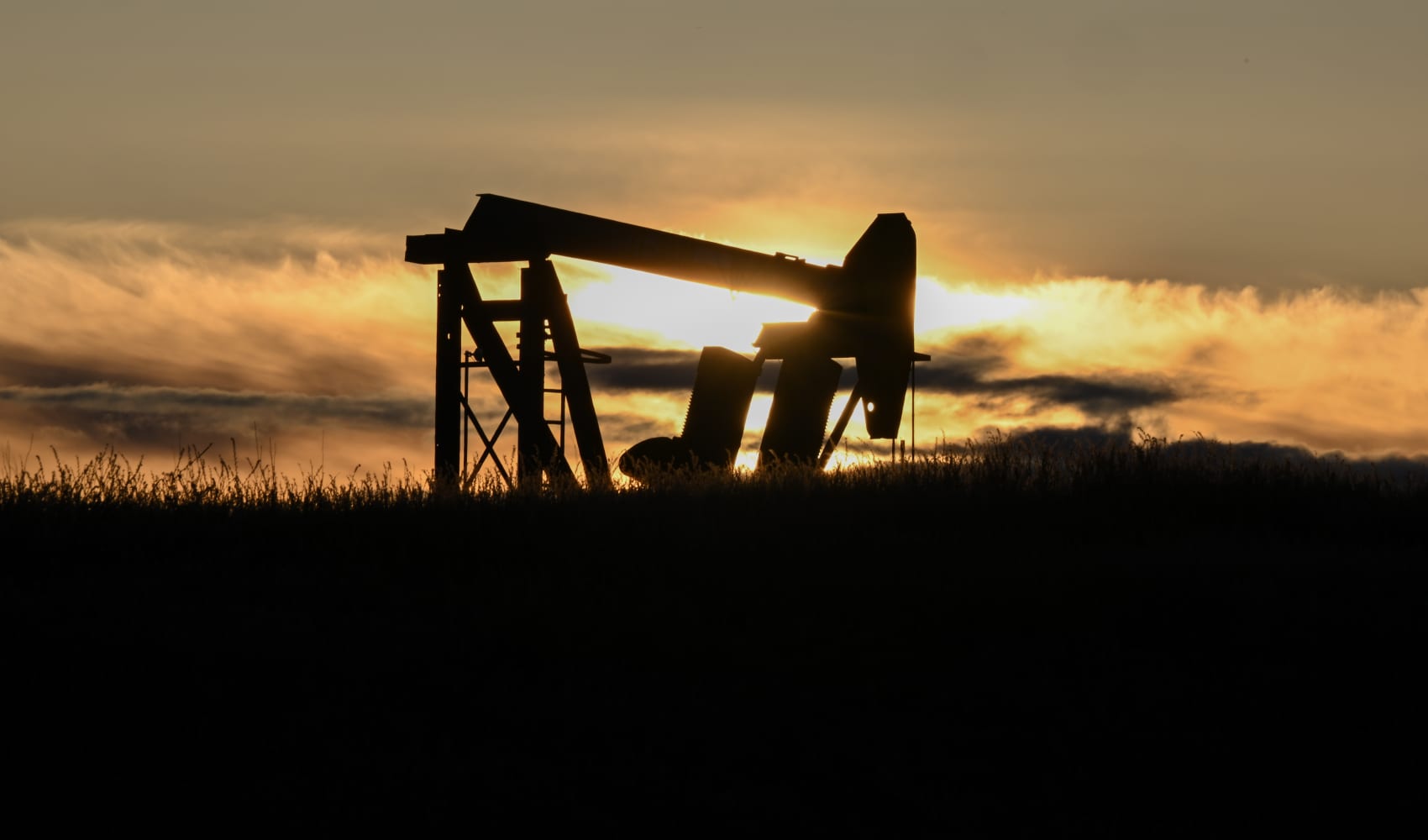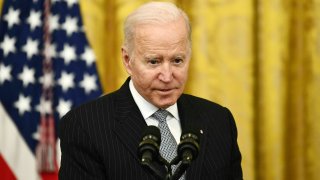
This has been CNBC's live blog tracking Tuesday's developments in the escalating Russia-Ukraine crisis.
Russian President Vladimir Putin has ordered troops into two breakaway regions of eastern Ukraine after announcing Monday evening that he would recognize their independence.
In response to the incursion, the U.S. and U.K. on Tuesday announced fresh sanctions targeting Russian financial institutions, individuals and sovereign debt.
President Joe Biden described the Russian actions as the beginning of an invasion of Ukraine and said more U.S. sanctions could follow the measures announced Tuesday.
Get Southern California news, weather forecasts and entertainment stories to your inbox. Sign up for NBC LA newsletters.
He spoke hours after U.K. Health Minister Sajid Javid said that "the invasion of Ukraine has begun."
See below for the latest updates as the world responds to Russia's military escalation.
Schumer requests all-senators meeting on Ukraine
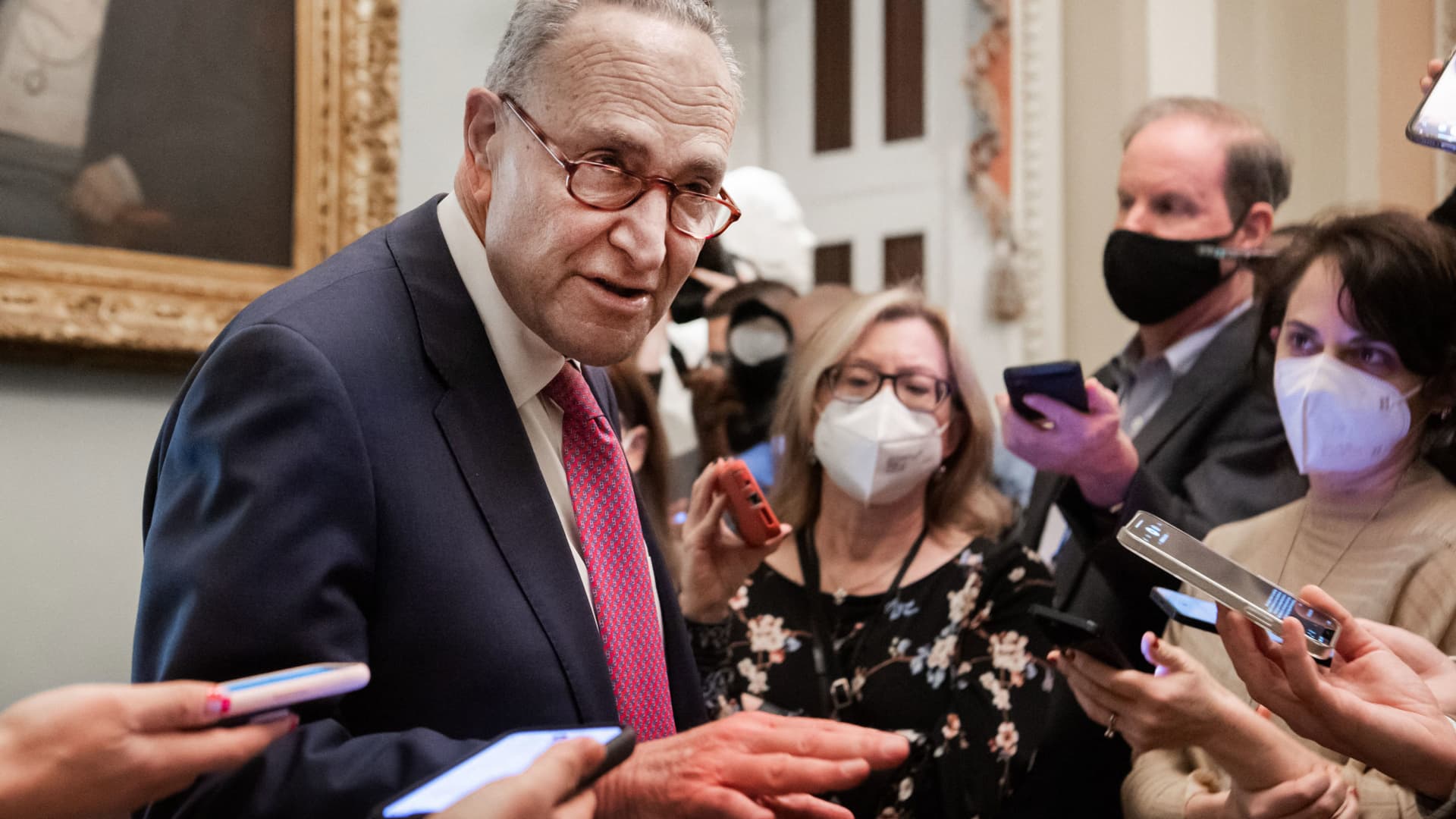
Senate Majority Leader Chuck Schumer, D-N.Y., has requested an all-senators briefing on the ongoing crisis on Ukraine's borders, a spokesperson for Schumer confirmed to NBC News.
Money Report
The Senate is not in session and does not return until Monday.
Schumer's request for administration officials to meet with the Senate comes after House Speaker Nancy Pelosi, D-Calif., sent a separate request on Monday for a briefing for all House members.
– Amanda Macias
Bipartisan leaders condemn Putin's aggression
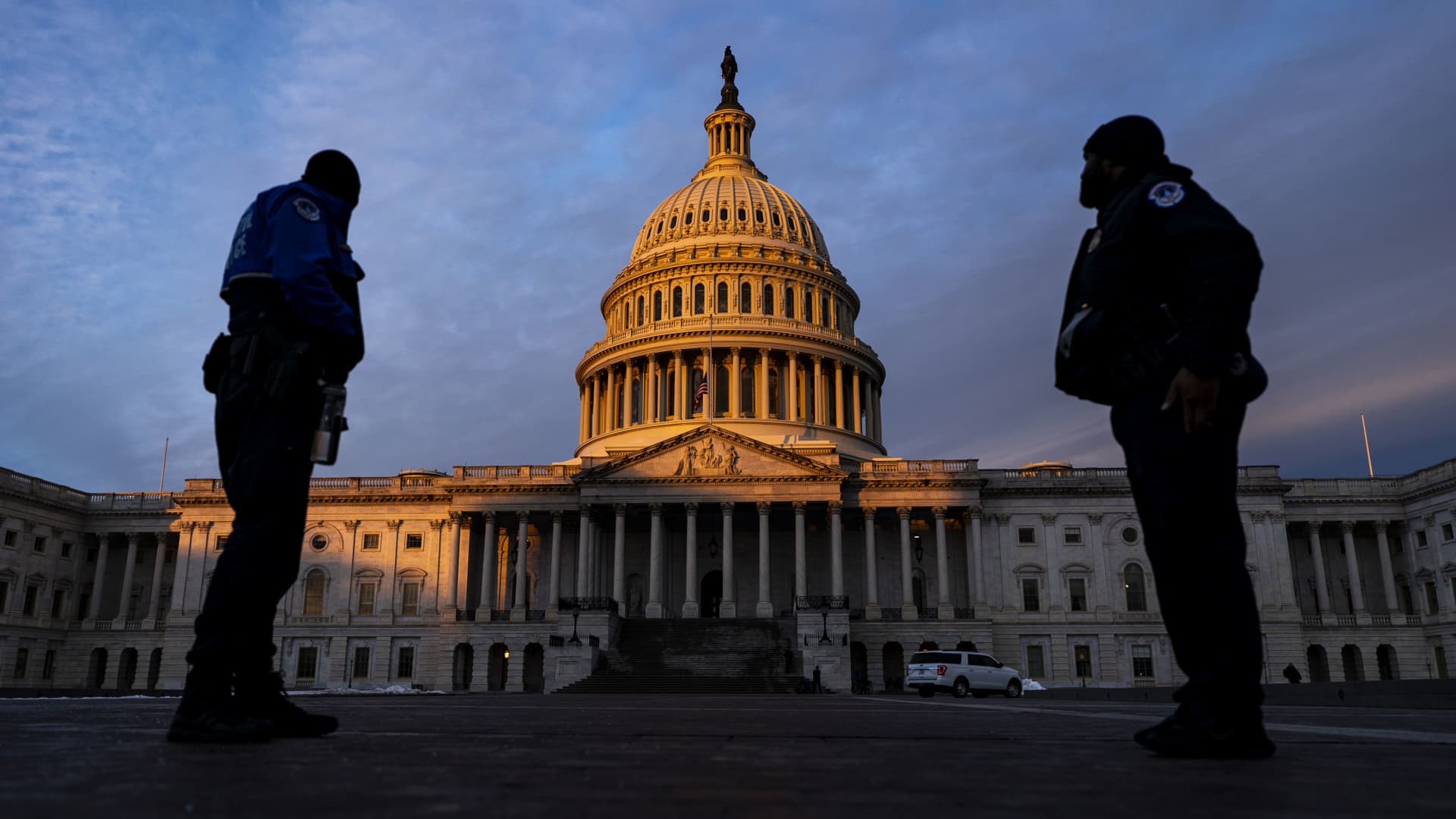
Bipartisan leaders of the Senate Armed Services Committee issued a joint statement on the heels of Russia's invasion of Ukraine.
U.S. Senator Jack Reed, D-R.I., Chairman of the Senate Armed Services Committee and Senator Jim Inhofe, R-Ok., Ranking Member of the Senate Armed Services Committee condemned Russian President Vladimir Putin's "unending quest to expand his authoritarian regime."
"[Putin] has trampled on Ukraine's sovereignty and jeopardized the peace that was forged in the aftermath of the Cold War," the two senators wrote in a joint statement.
"In the months and days leading up to this invasion, the Kremlin pushed falsehoods to justify its aggression. But we should be clear: Ukraine, NATO, and the international community are not and have not been the aggressors," the lawmakers wrote, adding that Putin choose the path of armed violence against Ukraine.
– Amanda Macias
Blinken calls off meeting with Russian Foreign Minister Lavrov
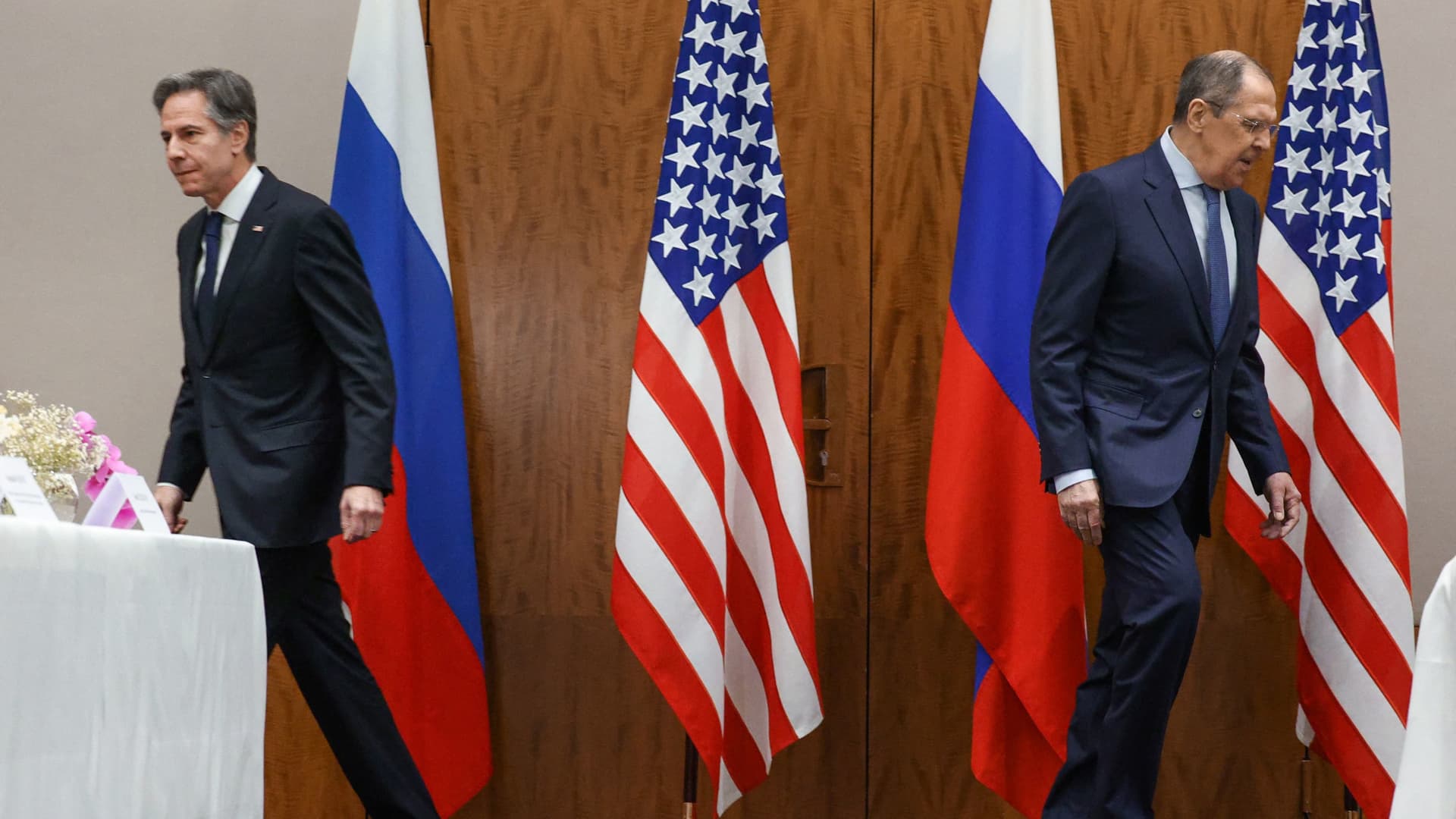
Secretary of State Antony Blinken said Tuesday that he will no longer meet with Russian Foreign Minister Sergey Lavrov, citing Moscow's continued troop movement into Ukraine.
"If Moscow's approach changes, we remain, I remain very much prepared to engage," Blinken said during a press conference alongside Ukrainian Foreign Minister Dmytro Kuleba.
Last week, Blinken agreed to meet with Lavrov on the condition that Russian forces do not further advance into Ukraine. President Joe Biden, who met with Kuleba earlier on Tuesday, said Russian President Vladimir Putin had started an invasion of Ukraine.
Biden announced a slew of retaliatory sanctions aimed at Russian financial institutions, Moscow's sovereign debt as well as Russian elites and their family members.
– Amanda Macias
S&P 500 closes in correction territory
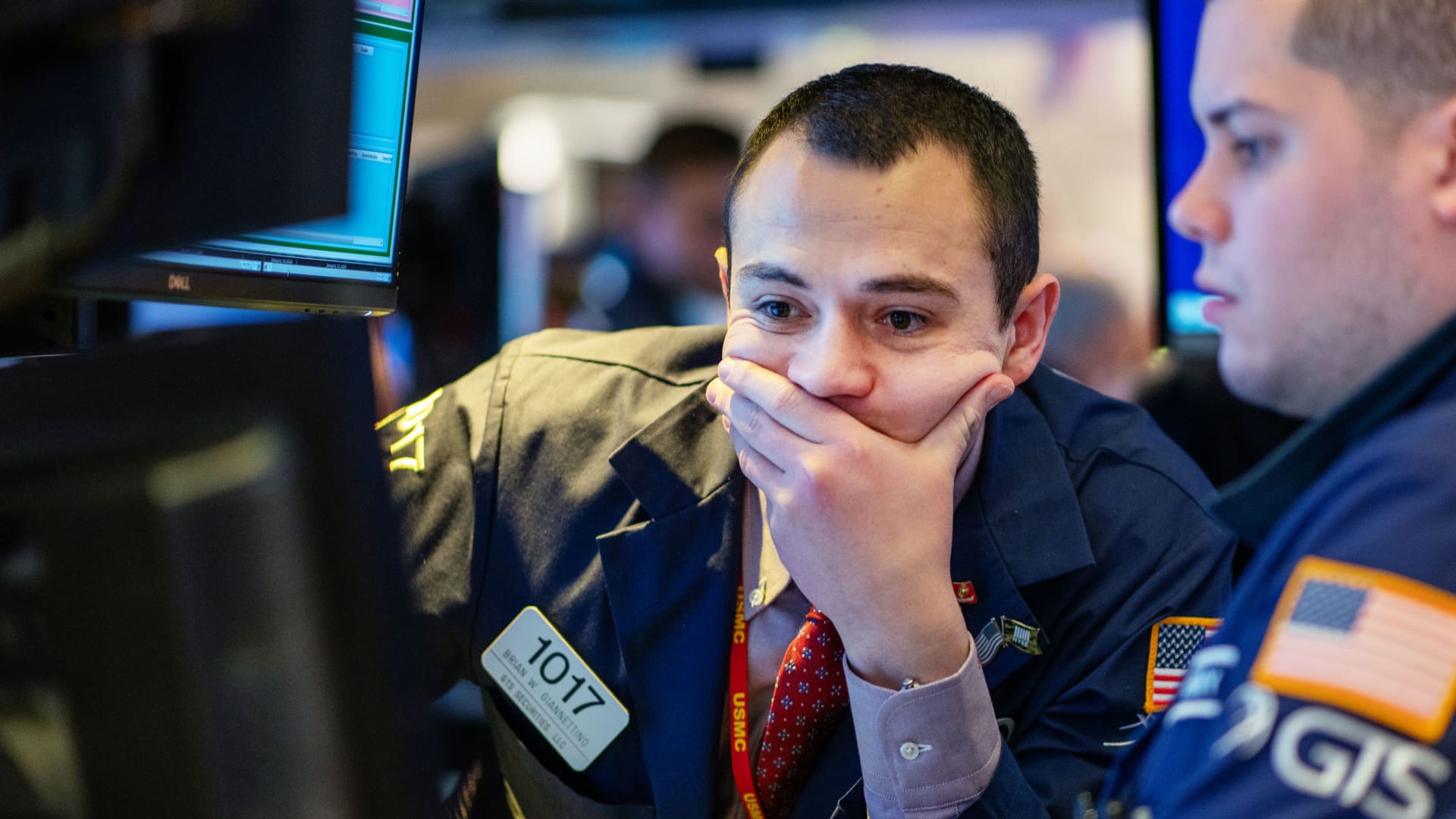
Stocks fell sharply Tuesday, as the ongoing conflict between Russia and Ukraine intensified.
The S&P 500 slid 1% at 4,304.76. That decline put the broad market index in correction territory, down more than 10% from a record close set earlier this year.
The Dow Jones Industrial Average dropped 482.57 points, or 1.4%, to 33,596.61. Tuesday's slide marked the Dow's fourth straight losing session. The Nasdaq Composite pulled back by 1.2% to 13,381.52.
—Fred Imbert
Pentagon moves more firepower to NATO member countries
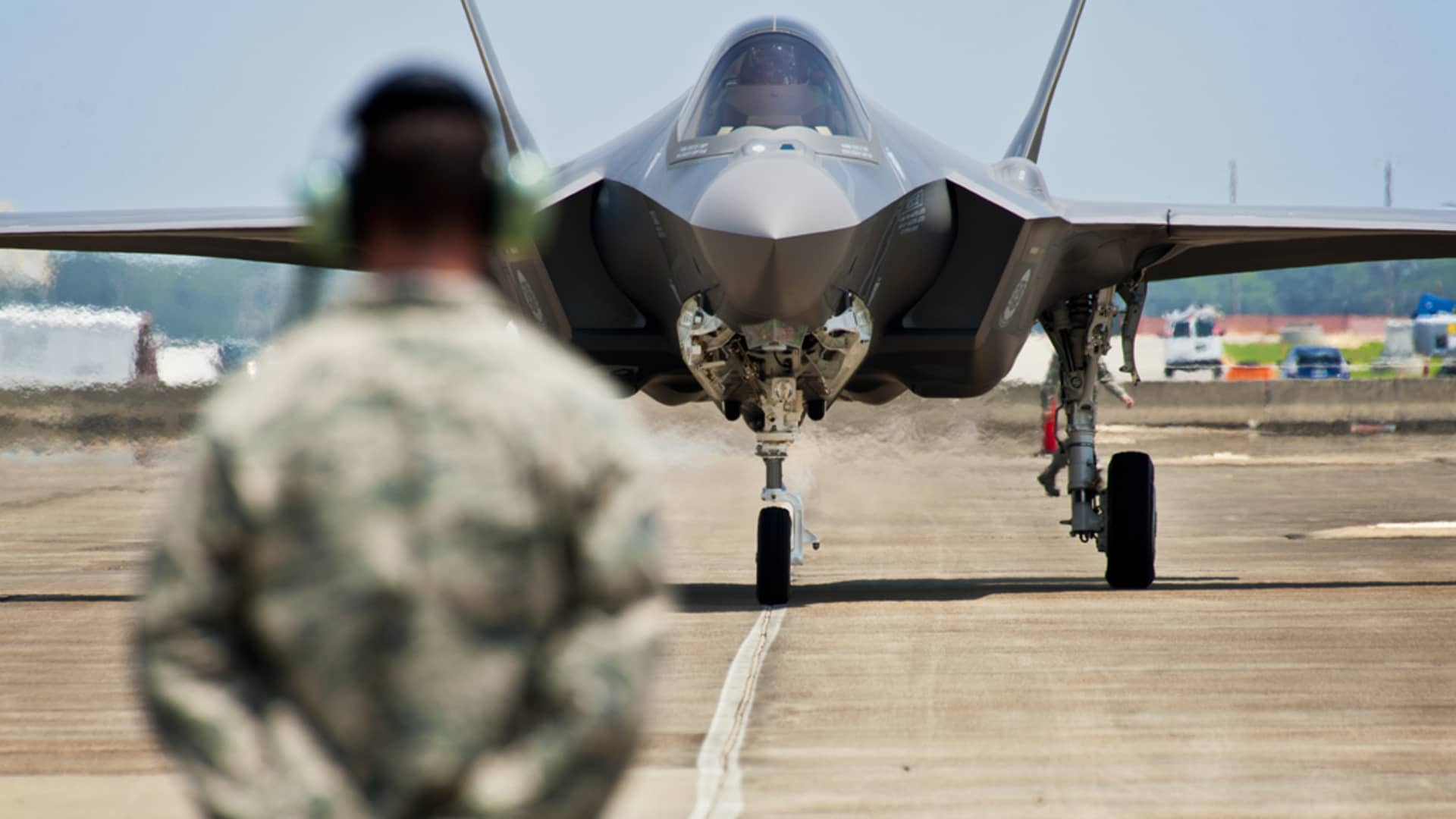
The Pentagon is moving more advanced military equipment and U.S. troops to NATO ally member countries to bolster defenses amid what the White House has called the start of a Russian invasion of Ukraine.
Secretary of Defense Lloyd Austin ordered European-based aviation elements and ground forces to deploy to NATO's northeastern and southeastern flanks.
The new marching orders include:
- An infantry battalion task force of about 800 personnel from Italy will move to the Baltic region
- Eight Lockheed Martin F-35 fighter jets from Germany will operate now in several locations along NATO's eastern flank
- 20 AH-64 attack helicopters will move from Germany to the Baltic region
- 12 AH-64 attack helicopters will move from Greece to Poland
"These moves are temporary in nature and are part of the more than 90,000 U.S. troops already in Europe on rotational and permanent orders," a Defense official wrote in a statement Tuesday confirming the additional movements.
President Joe Biden has not committed to sending U.S. troops to Ukraine but instead to NATO countries in the region.
— Amanda Macias
Rising oil prices could impact Fed decision on interest rates
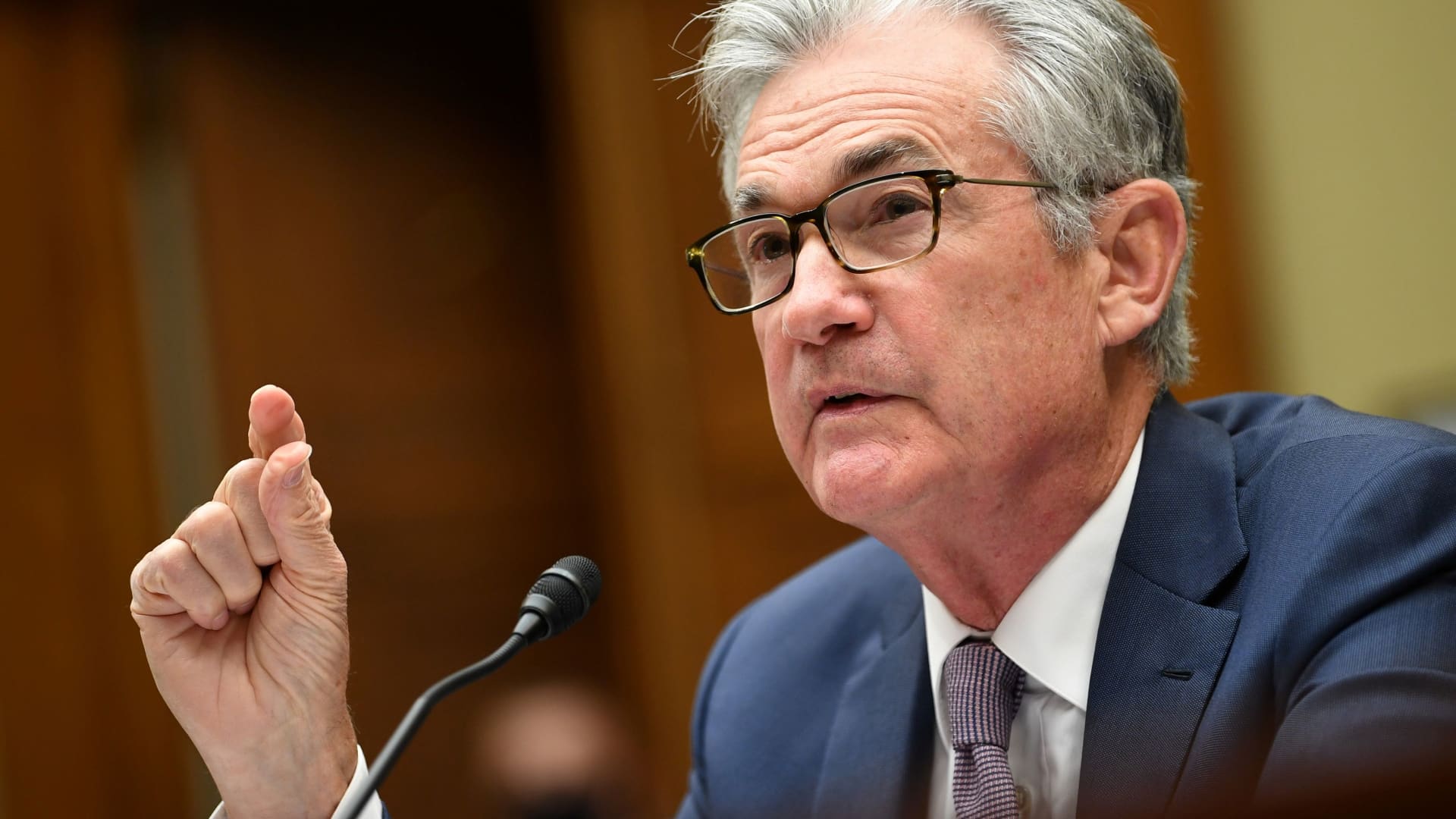
Tensions between Russia and Ukraine could impact the Federal Reserve's plans to raise interest rates if oil prices rise sharply.
Russia is a major commodity exporter, and oil and other commodities have been rising on concerns of supply shortages.
But oil is the one commodity that can broadly impact inflation and the pace of economic growth.
Economists say they expect the Fed to raise rates in March by a quarter point, but the path of rate hiking for the rest of the year could be in doubt if there's a sharp spike in crude prices that drags on the economy.
On the other hand, a less severe jump in prices could spark more inflation and that might make the Fed consider becoming more aggressive.
- Patti Dom
Biden met with Ukraine foreign minister to reaffirm U.S. commitments, White House reveals
President Joe Biden on Tuesday met with Ukraine's foreign minister to reaffirm the United States' commitments to Kyiv and its readiness to respond "swiftly and decisively to further Russian aggression," the White House revealed.
Biden updated Foreign Minister Dmytro Kuleba on the executive order he signed on Monday night and the batch of sanctions he announced the next day, according to a readout of the meeting, which had not been previously announced.
"He also affirmed that the United States would continue providing security assistance and macroeconomic support to Ukraine," the White House said.
Biden "reiterated the readiness of the United States, in close cooperation with our Allies and partners, to respond swiftly and decisively to any further Russian aggression against Ukraine," according to the White House.
— Kevin Breuninger
'Defending freedom will have costs': Biden warns sanctions may affect U.S. gas prices
President Joe Biden warned that the new sanctions being slapped on Russia may also cause some pain at U.S. gas stations, but he said that his administration is taking steps to keep prices down.
"As I said last week, defending freedom will have costs for us as well and here at home. We need to be honest about that," Biden said at the White House.
"But as we do this, I'm going to take robust action to make sure the pain of our sanctions is targeted at [the] Russian economy, not ours," he said.
"We're closely monitoring energy supplies for any disruption. We're executing a plan in coordination with major oil-producing consumers and producers toward a collective investment to secure stability in global energy supplies," the president said. "This will blunt gas prices."
"I want to limit the pain the American people are feeling at the gas pump," Biden said. "This is critical to me."
— Kevin Breuninger
Biden announces first tranche of U.S. sanctions against Russia
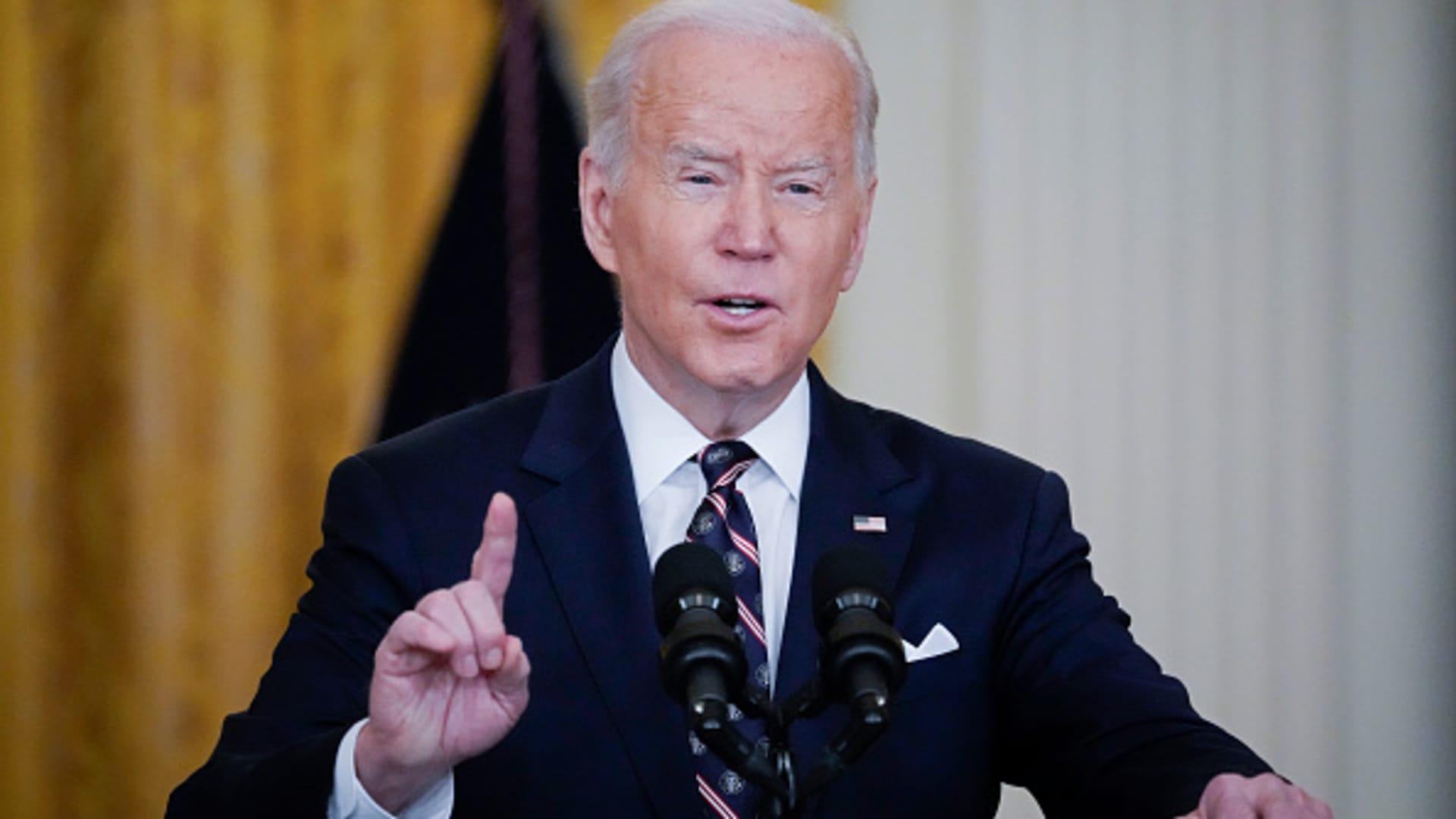
President Joe Biden announced a slew of retaliatory sanctions aimed at Russian financial institutions, Moscow's sovereign debt as well as Russian elites and their family members.
"Today, I'm announcing the first tranche of sanctions to impose costs on Russia in response to their actions," Biden said in a Tuesday address from the White House, referencing the Kremlin's continued aggression against Ukraine.
"We are implementing full-blockage sanctions on two large Russian financial institutions, the VEB and their military bank. We are also implementing comprehensive sanctions on Russian sovereign debt," Biden said.
The sanctions imposed on Russia's sovereign debt will effectively remove the Kremlin from Western financial markets. Biden said that in the coming days his administration will also impose sanctions on Russian elites and their family members as they benefit from the Kremlin's maligned behavior.
The new measures come on the heels of Russian President Vladimir Putin's decision to recognize the independence of two breakaway regions of eastern Ukraine.
U.S. and European allies have warned that Putin's recognition of the so-called Donetsk People's Republic and Luhansk People's Republic could serve as a possible prelude to a Russian invasion. The two enclaves in the Donbas region are where Ukrainian forces and Russia-backed rebels have been engaged in a long-running armed standoff.
The conflict in the separatist regions began in 2014, shortly after Russia's illegal annexation of Crimea, a peninsula on the Black Sea.
Earlier on Tuesday, the Russian government granted Putin permission to deploy Russian forces outside of the country's borders.
"He's setting up a rationale to go much further. This is the beginning of a Russian invasion of Ukraine," Biden said during his address, his third speech in the past week.
Biden reiterated that while he will not commit to sending U.S. troops into Ukraine he vowed to defend "every inch of NATO territory."
"I've authorized additional movements of U.S. forces and equipment already stationed in Europe to strengthen our Baltic allies, Estonia, Latvia and Lithuania. Let me be clear, these are totally defensive moves on our part. We have no intention of fighting Russia," Biden said, adding that the U.S. and European allies were still hopeful for a diplomatic resolution to the crisis.
– Amanda Macias
Market sell-off deepens on Tuesday afternoon as investors digest tensions
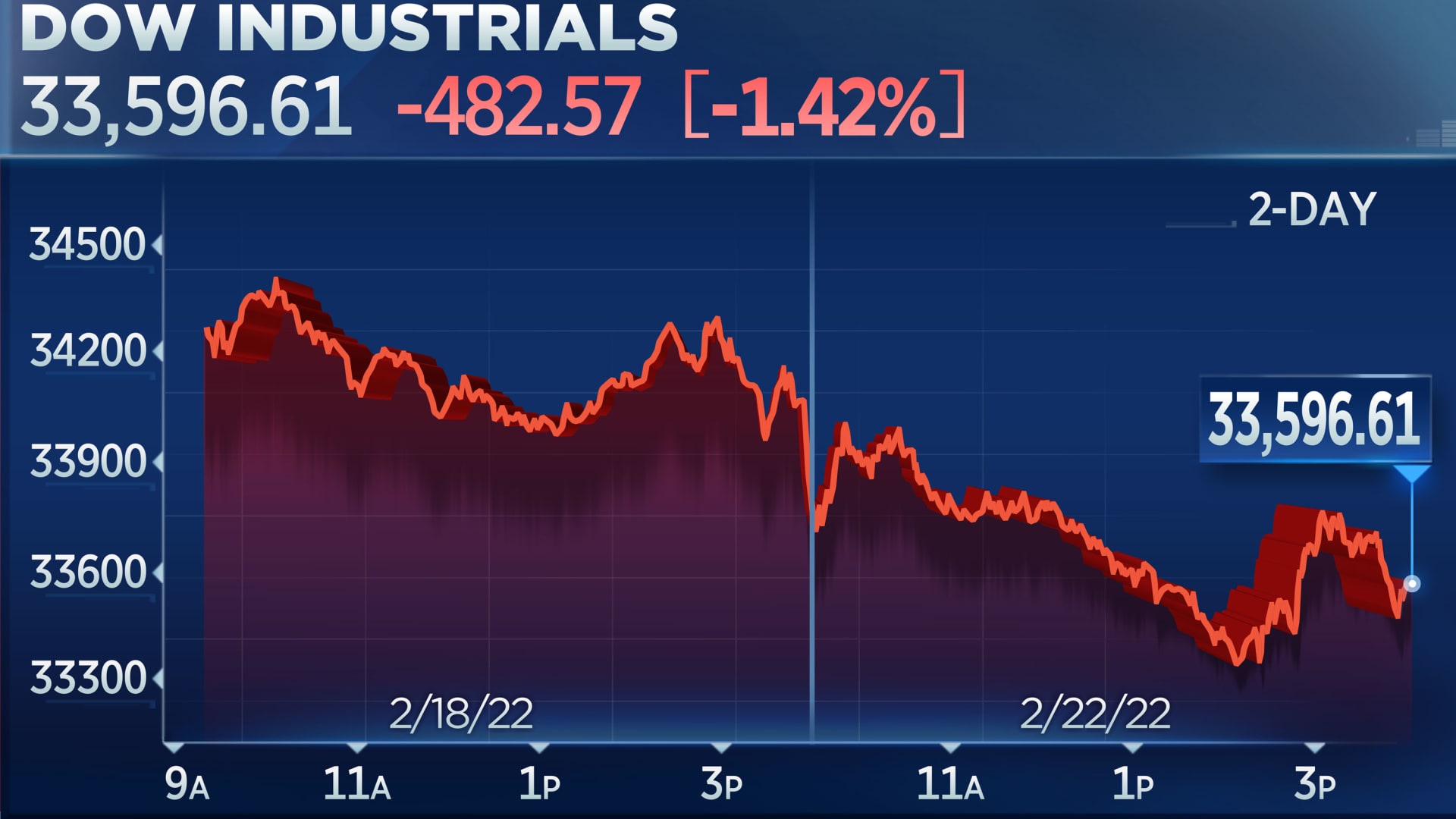
A rocky start to the week for the U.S. stock market got worse on Tuesday afternoon as investors monitored developments in Ukraine.
The Dow Jones Industrial Average, which was down fewer than 300 points at noon ET, had extended its losses to more than 650 points shortly after 2 p.m. ET. The tech-heavy Nasdaq Composite dropped nearly 2%, while the S&P 500 shed 1.7%.
Tuesday's market moves come on top of recent weakness for stocks. The three major indexes all lost more than 1% last week.
Elsewhere, the price of gold and 30-year U.S. Treasury bonds rose, suggesting that some investors were shifting toward safety assets.
U.S. markets were closed on Monday for Presidents' Day.
-Jesse Pound
U.S. Defense secretary meets with Ukrainian foreign minister at Pentagon
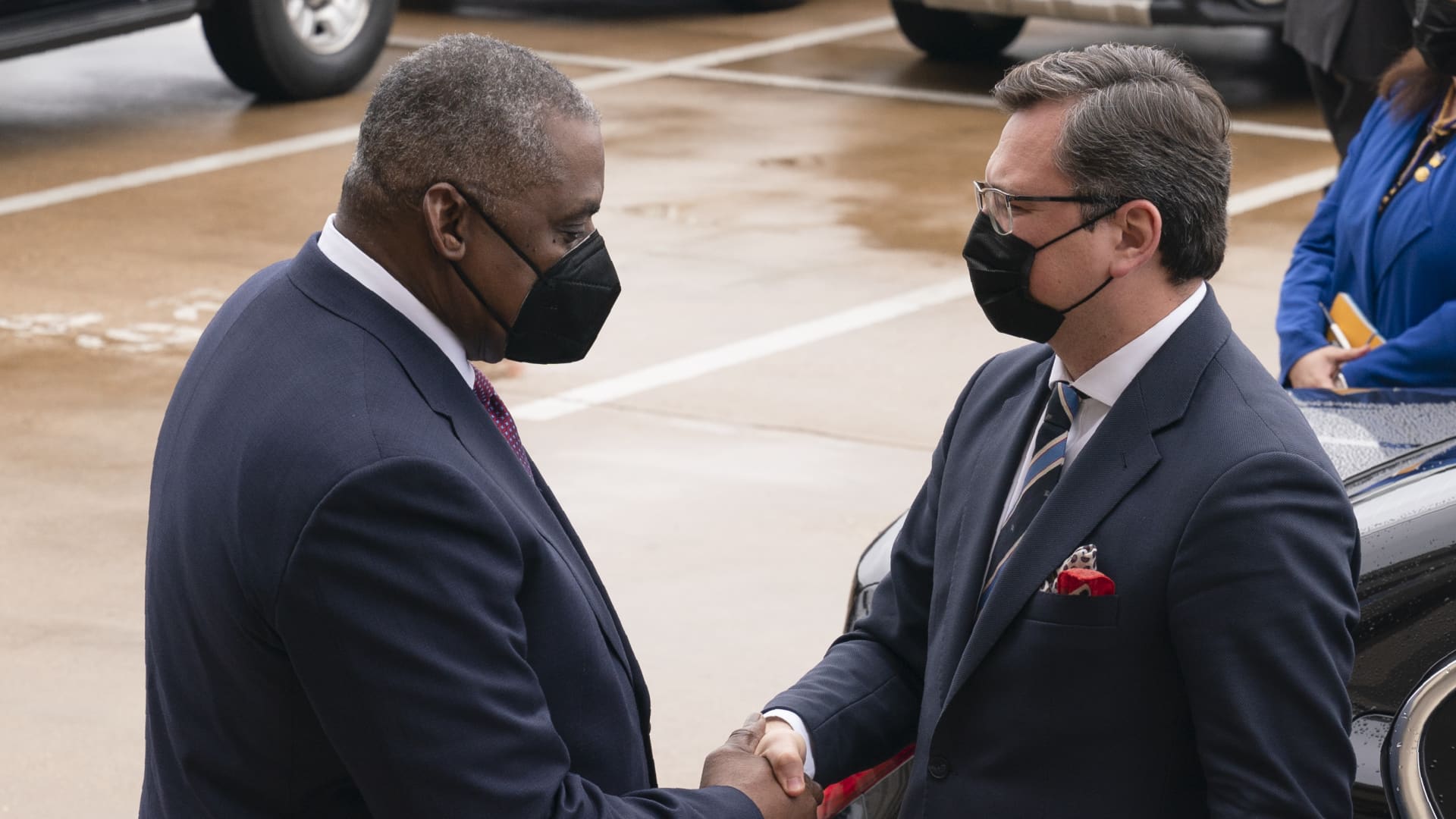
Secretary of Defense Lloyd Austin met with Ukrainian Foreign Minister Dmytro Kuleba Tuesday afternoon at the Pentagon.
Kuleba told reporters at the Pentagon that Kyiv does not want a war with Russia "but if a war is forced on them they will defend themselves," according to a pool report. Kuleba said Russian President Vladimir Putin's lengthy speech Monday evening was about "the destruction of the Ukrainian state."
Austin said U.S. support for Ukraine's sovereignty and territorial integrity is "unwavering."
Following his meeting with Biden's Defense Secretary, Kuleba is slated to meet with Secretary of State Antony Blinken.
Blinken and Kuleba will hold a joint press conference at the State Department at 4:15 p.m. ET.
— Amanda Macias
Here are the 3 Russian billionaires hit with sanctions by the U.K.
The three Russian billionaires hit with sanctions by the U.K. on Tuesday are well-known members of President Vladimir Putin's inner circle who have been on the U.S. sanctions list since 2014.
The U.K. announced sanctions on Gennady Timchenko, Boris Rotenberg and Igor Rotenberg — three oligarchs that the British government said are "leading members of the Russian elite of particular significance to the Kremlin." The U.K. said the three will be subject to an asset freeze and travel ban to the U.K.
The sanctions were part of a first wave of economic measures — which also included five Russian banks — in response to Russia's decision to order troops into eastern Ukraine. The U.K. said it will impose broader sanctions, which could include a longer list of Russian oligarchs, if Moscow engages in "further aggressive acts."
Here is what the U.K. and U.S. Treasury Department revealed about the three Russian businessmen placed on the new sanctions list.
Gennady Timchenko
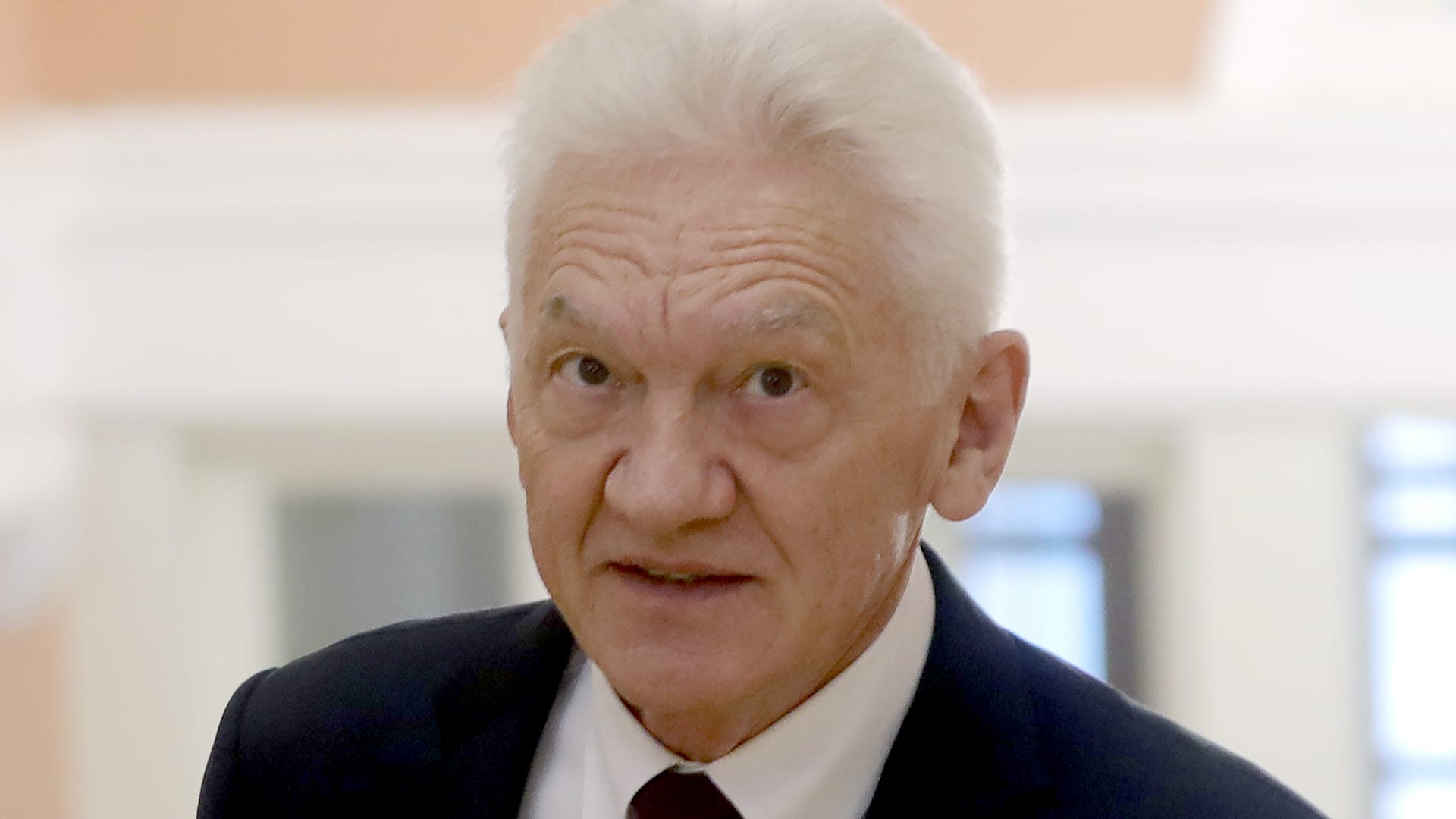
Timchenko is ranked as the 8th richest Russian on the Bloomberg Billionaires Index, with an estimated fortune of more than $18 billion. The U.K. also calls him "one of the most powerful people in Russia." He is the founder of the private investment group Volga Group, which is headquartered in Luxembourg and focuses on energy, transportation and infrastructure projects.
Like many Russian billionaires, Timchenko has multiple citizenships, from Russia, Finland and Armenia. He is also chairman of the board of directors for the Russian ice hockey league KHL.
While not as well known in the West as some other Russian billionaires, he owns a fleet of jets, a 130-foot yacht called Lena (named after his wife) and stakes in a vast network of Russian companies, including gas company Novatek and petrochemicals firm Sibur Holding.
In 2014, as part of its sanctions against Russia after the Crimea annexation, the U.S. Treasury Department's Office of Foreign Assets Control designated Timchenko as one of 16 "members of the Russian leadership inner circle."
"Timchenko's activities in the energy sector have been directly linked to Putin," Treasury announced at the time.
"Putin has investments in Gunvor and may have access to Gunvor funds," the U.S. added, in reference to commodities trading firm cofounded by Timchenko.
Boris Rotenberg
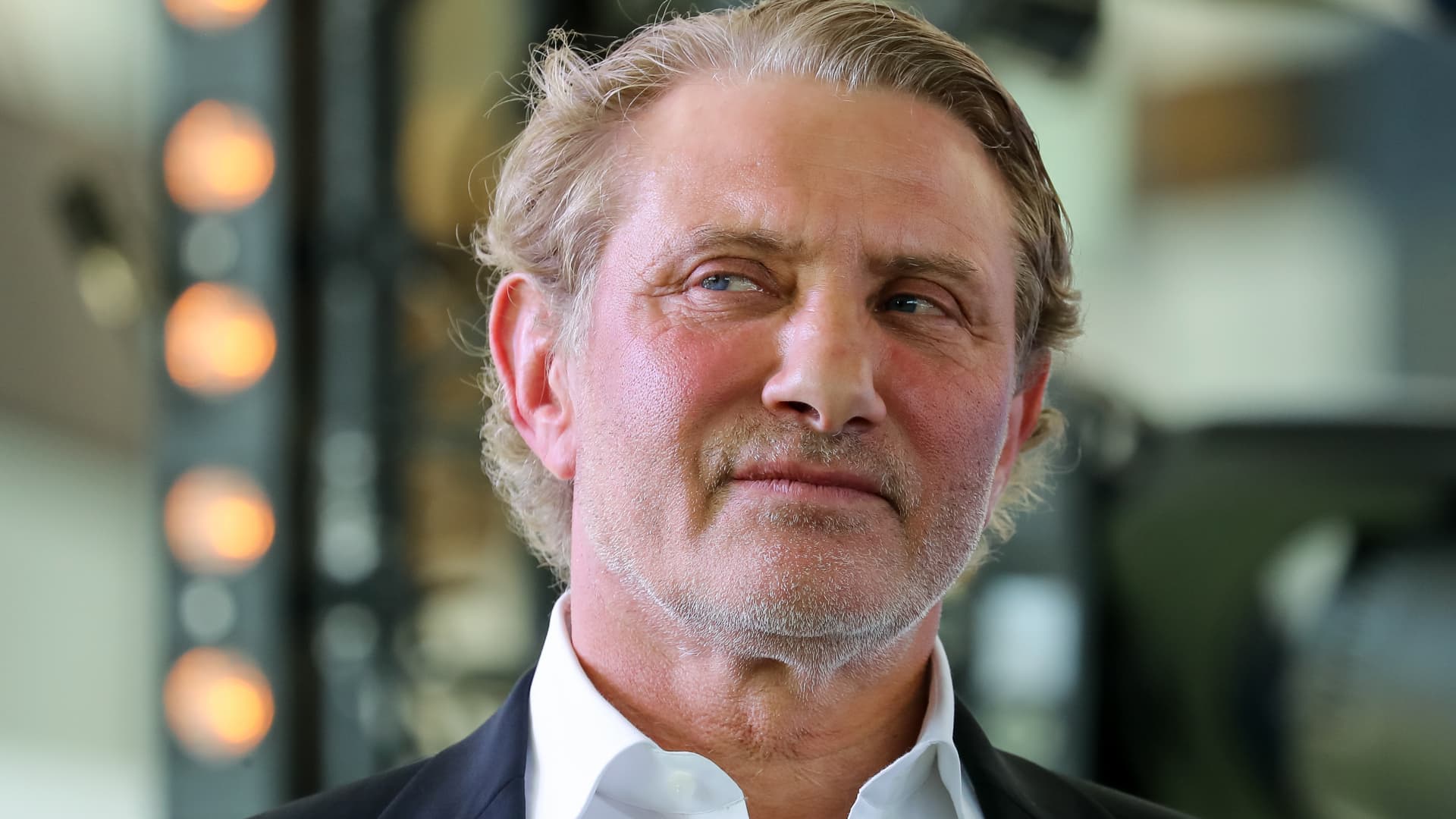
While the estimated wealth of Boris Rotenberg would not put him among the top 20 in Russia, he is among Putin's closest allies, according to government officials. A former judo trainer, Rotenberg was Putin's sparring partner at a martial arts camp in the 1970s and the two remained close.
Rotenberg's fortune is estimated at around $1.2 billion. He and his brother Arkady own SGM, the largest construction company for gas pipelines and electrical power lines in Russia.
Boris Rotenberg is also a member of the St. Petersburg Connection, a powerful energy lobby.
Igor Rotenberg
Igor Rotenberg, the oldest son of Arkady Rotenberg and presumed heir to his fortune, controls drilling company Gazprom Bureniye. In October 2018, Igor Rotenberg's wealth was estimated to be roughly $1 billion.
In its 2014 sanctions report, Treasury said Igor Rotenberg has provided "support to Putin's pet projects by receiving and executing high price contracts for the Sochi Olympic Games and state-controlled Gazprom."
— Robert Frank
Planned meeting of U.S. and Russian diplomats is now in doubt
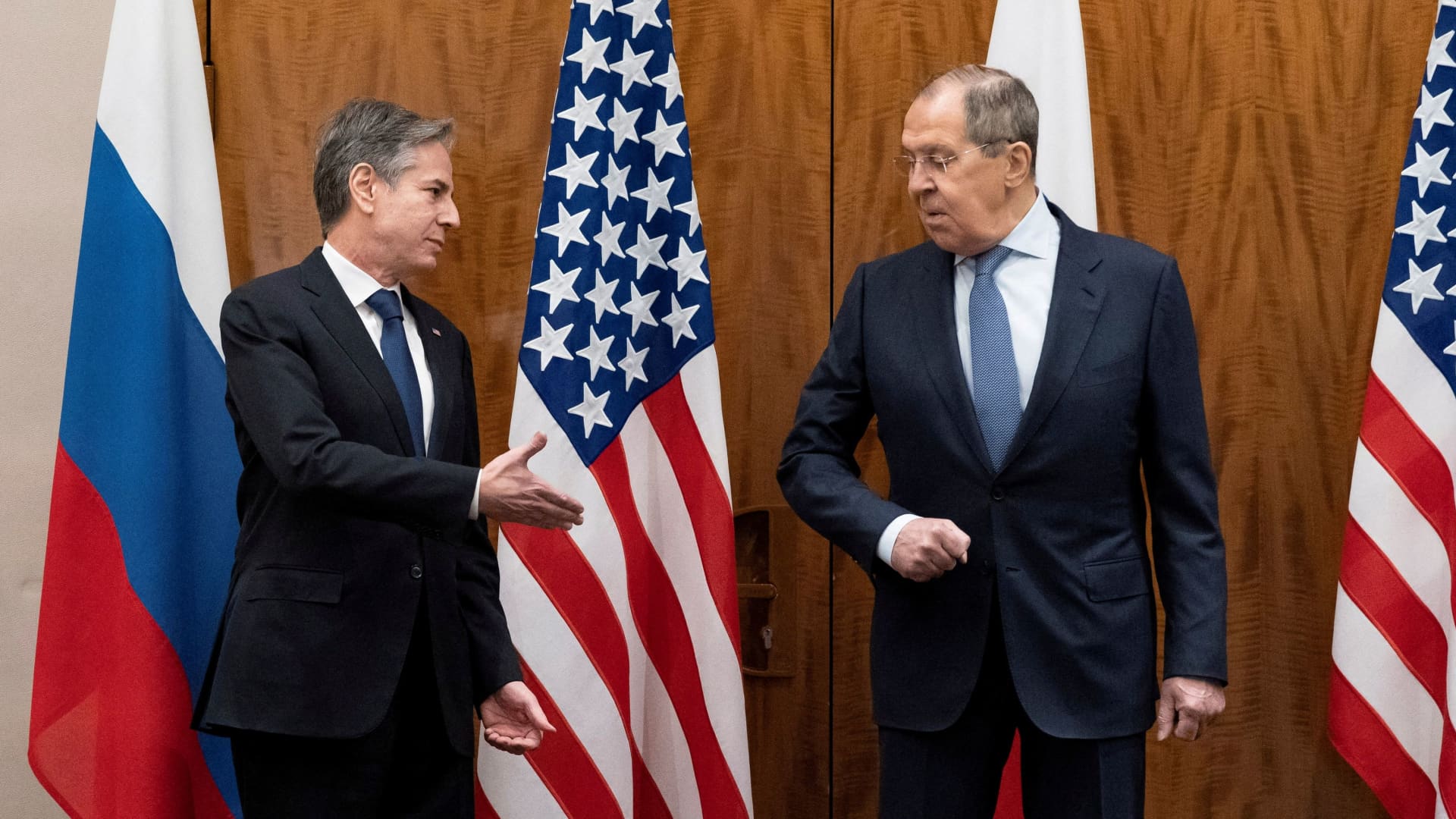
A tentative meeting that was to occur Thursday between Secretary of State Antony Blinken and Russia's Foreign Minister Sergey Lavrov looked increasingly unlikely Tuesday as both the Unites States and Russia hardened their positions on Moscow's military incursion into Ukraine.
"What Russia has done has made a diplomatic path much harder to walk down and much less likely," said Jon Finer, the U.S. deputy national security advisor, on CNN on Tuesday.
Russian President Vladimir Putin ordered troops into two breakaway regions of eastern Ukraine on Monday after announcing that he would recognize their independence.
On Tuesday, Russia's parliament approved Putin's request to use military force outside the country's borders, a development that could lead to a broader attack on Ukraine.
President Joe Biden will speak about the crisis at 1 p.m. ET on Tuesday.
Biden has not yet used the word "invasion" himself to describe the Russian military deployment in the two breakaway regions of eastern Ukraine, but that could change Tuesday afternoon.
There is a lot riding on the word "invasion," which helps to explain why the United States has avoided using it until now.
Biden has long promised to impose severe economic sanctions against Russia if Moscow further invades Ukraine, but the White House has not said specifically what they will be.
If the U.S. formally determines that an invasion is underway, Biden will be expected to unveil some of these sanctions, which could have immediate effects on oil prices and financial markets.
— Christina Wilkie
Russian government approves Putin's request to use military force outside of its borders
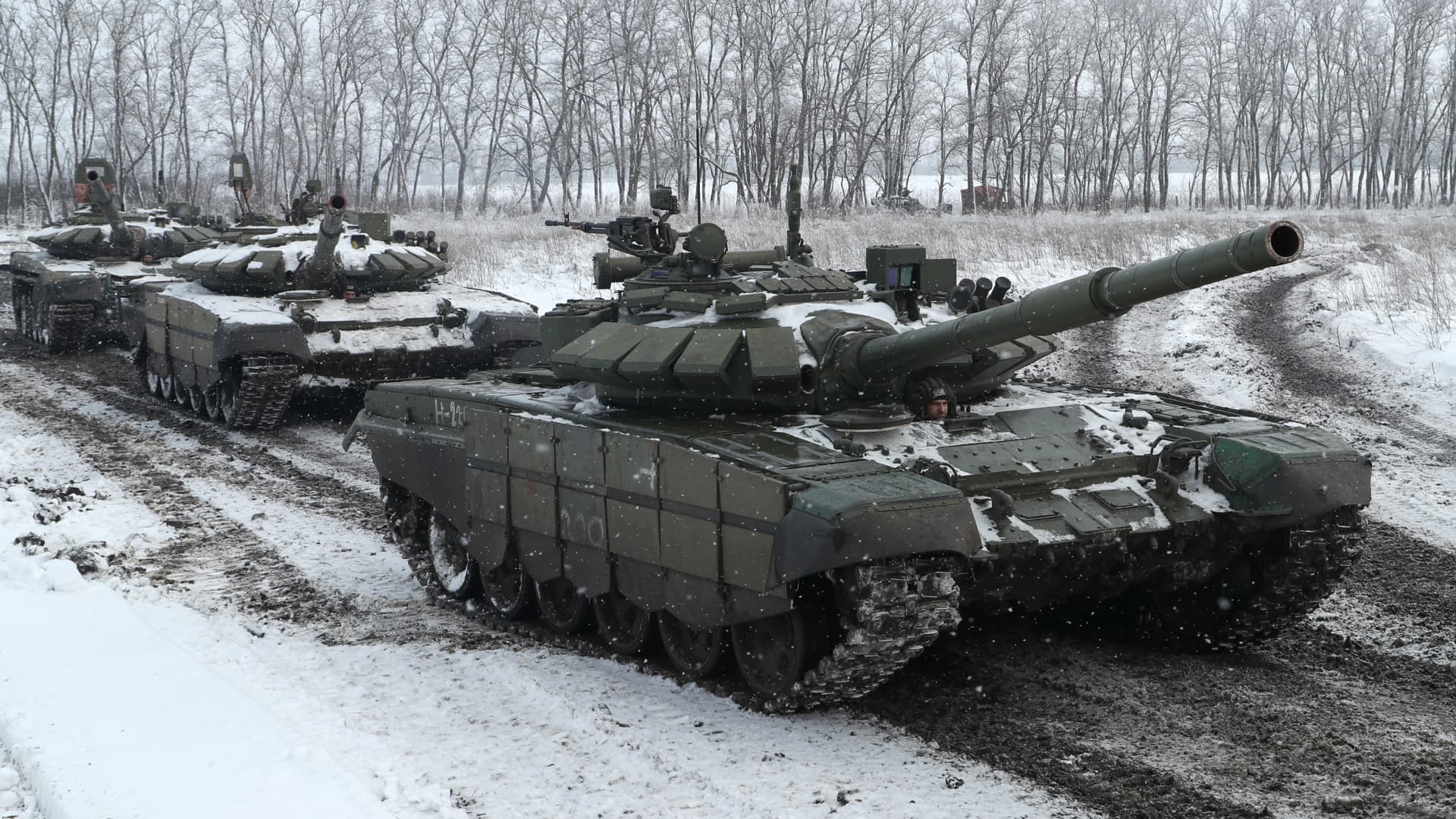
Russia's parliament approved Russian President Vladimir Putin's request on Tuesday to use military force outside the country's borders, a development that could lead to a broader attack on Ukraine.
"The total number of formations of the armed forces of the Russian Federation, the areas of their operations, the tasks facing them, the terms of stay outside the territory of the Russian Federation are determined by the President of the Russian Federation in accordance with the Constitution of the Russian Federation," the Russian government wrote in a statement.
The quick rubber-stamp from Russian lawmakers comes on the heels of Putin's decision to recognize the independence of two breakaway regions in eastern Ukraine.
NATO Secretary-General Jens Stoltenberg condemned Putin's request to use combative force outside of Russia's borders during a press conference at the alliance headquarters.
"Requests to get permission to use force outside the Russian territory just adds to the pattern of decision and actions by Russia in the last few months which has led to the most dangerous moment for our security in decades," Stoltenberg said.
– Amanda Macias
Biden will deliver an update on Ukraine and Russia
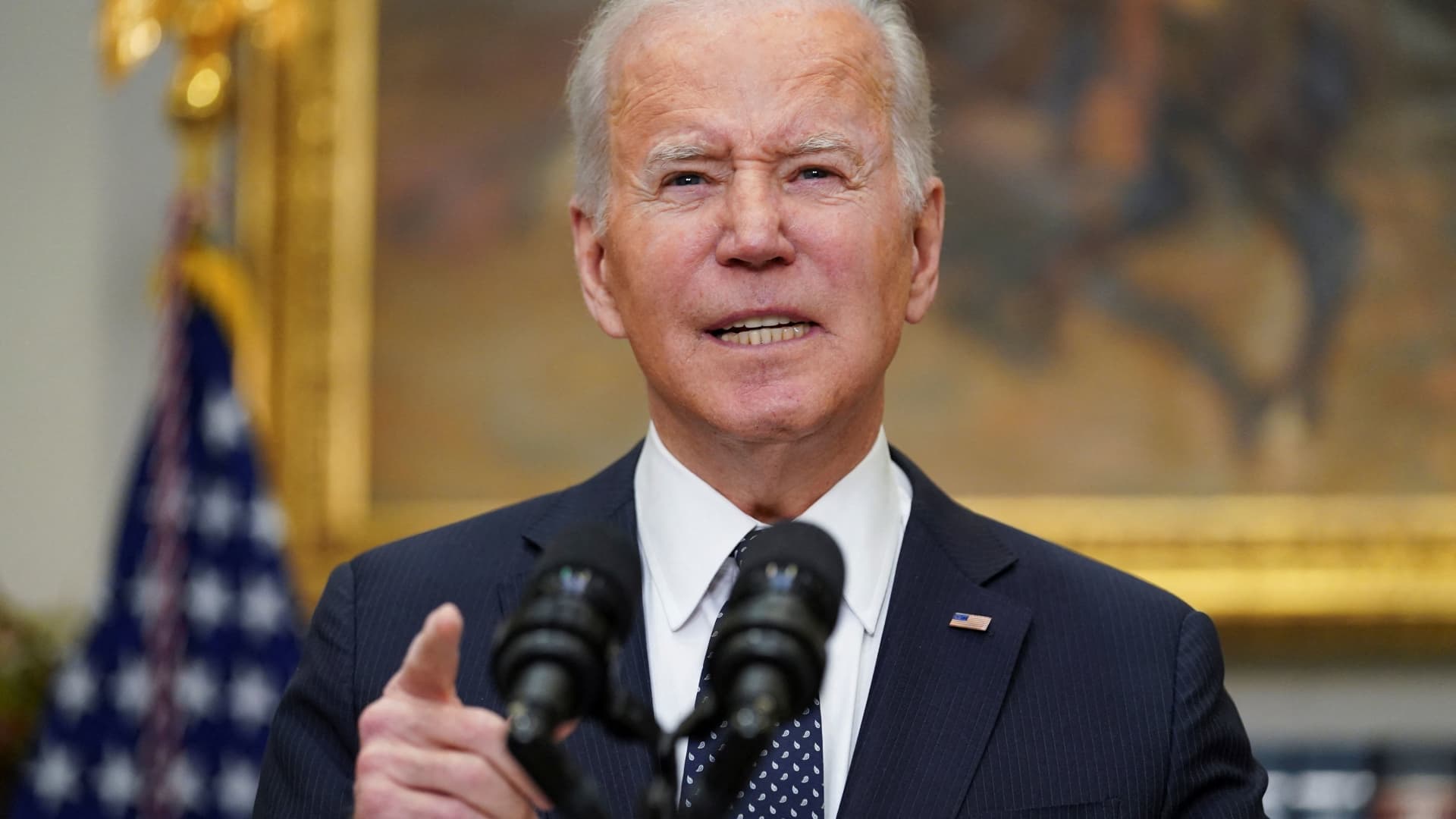
President Joe Biden will deliver an update after 2 p.m. ET on the situation in Russia and Ukraine and the U.S. response, the White House said.
The speech will be Biden's third such address in a week, and it comes just hours after Russia's parliament voted Tuesday to give President Vladimir Putin sweeping authority to deploy troops abroad.
On Monday, Putin ordered troops into two breakaway regions of eastern Ukraine after announcing that he would recognize their independence.
U.K. Health Minister Sajid Javid said Tuesday that "the invasion of Ukraine has begun."
Biden has not yet used the word "invasion" himself to describe the current activity, but that could change Tuesday afternoon. A top national security official in the Biden White House used the word on live TV on Tuesday morning, a deliberate decision that marked a shift in the American characterization of the Russian military incursion.
– Christina Wilkie
Oil jumps to highest level since 2014 as tensions mount
Oil jumped to its highest level since 2014 as tensions between Russia and Ukraine escalate, with prices now within striking distance of $100.
International benchmark Brent crude traded as high as $99.50 per barrel, but by 11 a.m. prices had eased back from that level. The contract last traded at $96.61 per barrel, for a gain of 1.3%.
West Texas Intermediate crude futures, the U.S. oil benchmark, stood 2.05% higher at $92.94 per barrel. Earlier the contract hit $96, the highest level in more than seven years.
The S&P 500 energy sector traded in the green Tuesday, buoyed by higher oil.
Devon Energy, EOG, Hess and Marathon Oil all rose to multi-year highs, while Pioneer Natural Resources hit an all-time high.
— Pippa Stevens
Biden under pressure from Congress to impose tougher sanctions on Russia
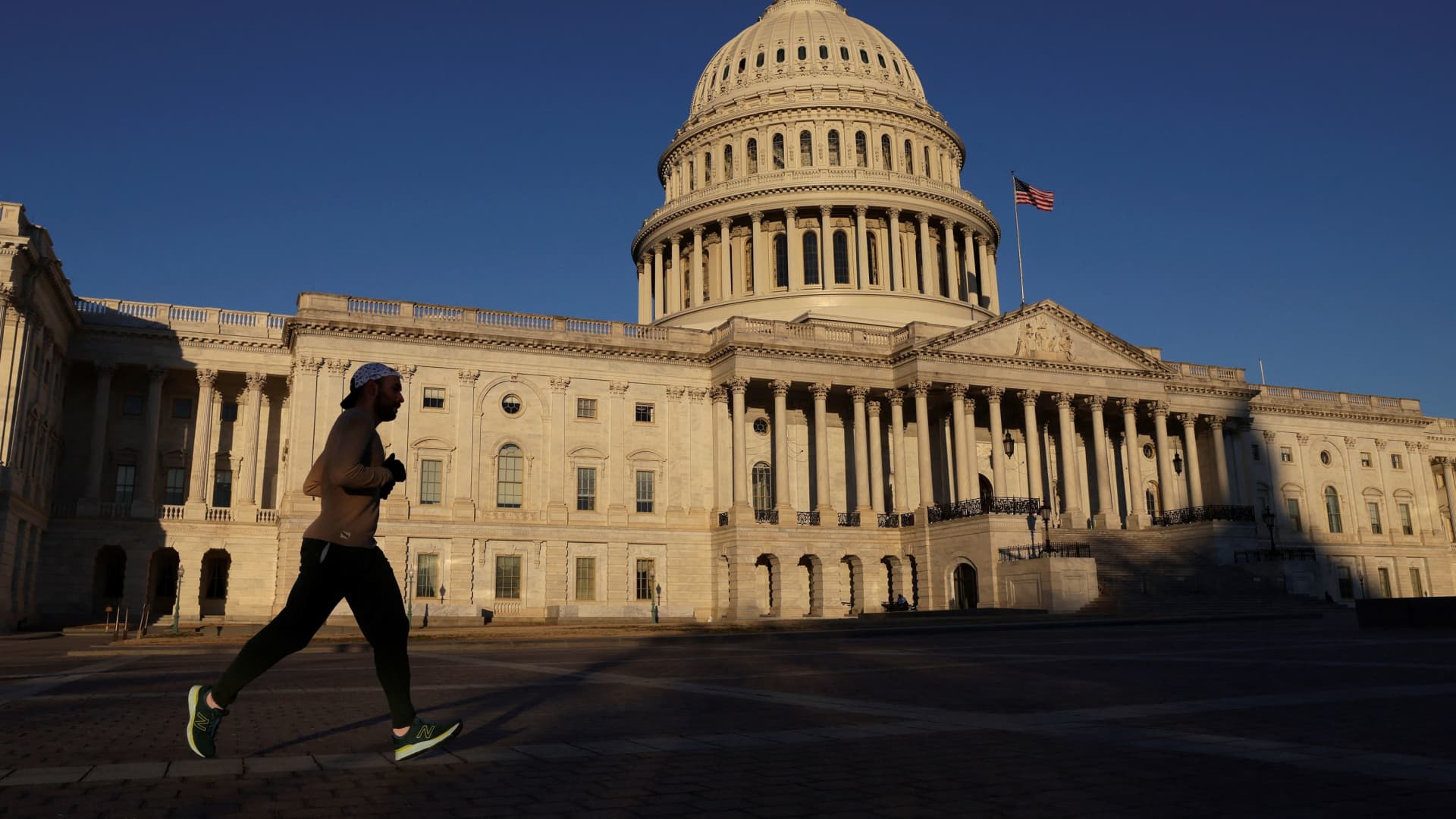
As President Joe Biden weighs how to best deploy economic sanctions against Russia, he is under pressure from both Republicans and Democrats in Congress to do more and do it faster.
The Biden administration argues that the purpose of sanctions should be to act as deterrents against further Russian incursion into Ukraine.
"We don't want to pull the trigger until we have to, because we lose the deterrent effect," Secretary of State Antony Blinken said on Feb. 20.
"At the same time, we also don't want to detail in public exactly what we're going to do because that will forewarn Russia; it will be able to prepare more effectively to try to mitigate the sanctions," he added.
But this arguably cautious approach to Russia is not sitting well with Congress.
Both Republicans and Democrats in the House and Senate have called on Biden to issue preemptive sanctions against Russia. They argue that Russia should be penalized for what it has already done, including recent cyber attacks against Ukraine and the arming of rebels in separatist areas of Eastern Ukraine.
Both the legislative branch and the executive branch of government can impose sanctions, and it's not uncommon for Congress to pass sanctions packages with overwhelming bipartisan majorities. But this time legislators were unable to reach a deal.
Earlier this month, senators abandoned a sweeping Russia package that would have imposed sanctions on Moscow and funded weapons for Ukraine. After weeks of negotiations, the deal ultimately fell apart over the question of whether U.S. sanctions should be aligned with those of other European and NATO countries, or whether America could go it alone.
Danish pension fund freezes new investments in Russian assets
Danish pension fund AkademikerPension announced Tuesday that effective immediately, it would make no new investments in Russian government bonds or in companies where the state owns more than 50% of the company.
"Putin's formal recognition of the two separatist republics is a violation of Ukraine's sovereignty, which is a violation of international law. And it is also a breach of our policy on responsible investment," AkademikerPension Director Jens Munch Holst said in a statement.
The firm said it would reinvest money that would have gone to Russia into other emerging market bonds.
Russian government securities and shares of state-controlled companies currently make up 0.3% of AkademikerPension's portfolio, the company said.
— Chloe Taylor
U.S. official says Russia has invaded Ukraine
In an interview with CNN on Tuesday morning, the Biden administration's Deputy National Security Advisor Jon Finer said: "Invasion is an invasion and that is what is underway."
Russian President Vladimir Putin ordered troops to enter eastern Ukraine on Monday evening after Moscow said it would recognize two self-declared republics in the region.
"We think this is, yes, the beginning of an invasion," Finer told CNN on Tuesday. "I am calling it an invasion. We're taking a severe response including sanctions on Russia [that] we'll be rolling out in a matter of hours."
The U.K. announced sanctions on Russian banks and oligarchs on Tuesday, while Germany halted the approval of a major gas pipeline between Russia and Europe.
— Chloe Taylor
Blinken slated to meet Ukrainian Foreign Minister in-person
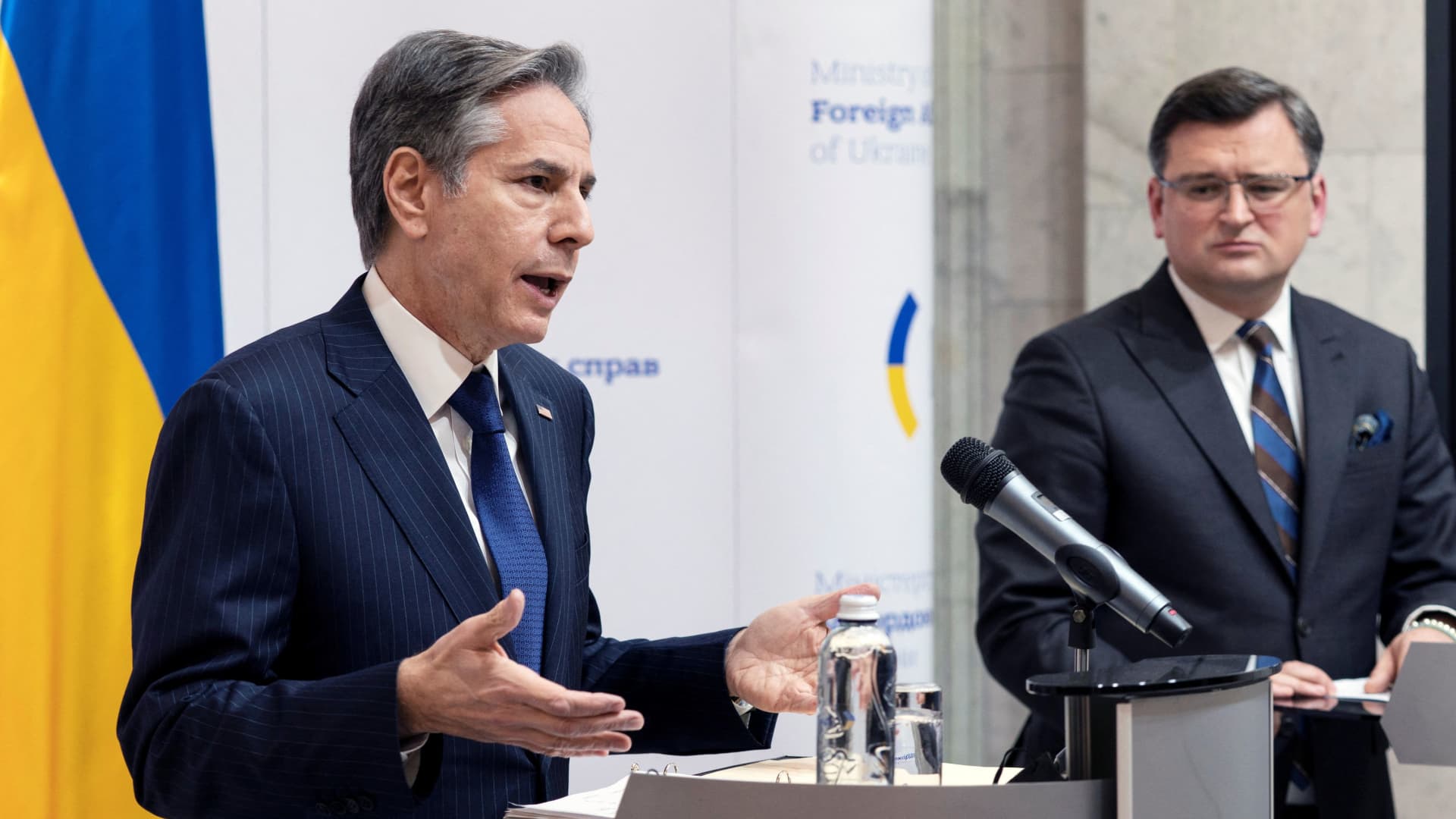
Secretary of State Antony Blinken will meet with Ukrainian Foreign Minister Dmytro Kuleba Tuesday afternoon at the State Department. America's chief diplomat last spoke with Kuleba by phone Monday night following Russian President Vladimir Putin's decision to recognize the independence of two breakaway regions in Ukraine.
State Department spokesman Ned Price said the two leaders discussed retaliatory U.S. sanctions as well as future additional measures.
Blinken and Kuleba are expected to hold a joint press briefing following their closed-door meeting.
– Amanda Macias
White House welcomes Germany's decision to halt Nord Stream 2 pipeline
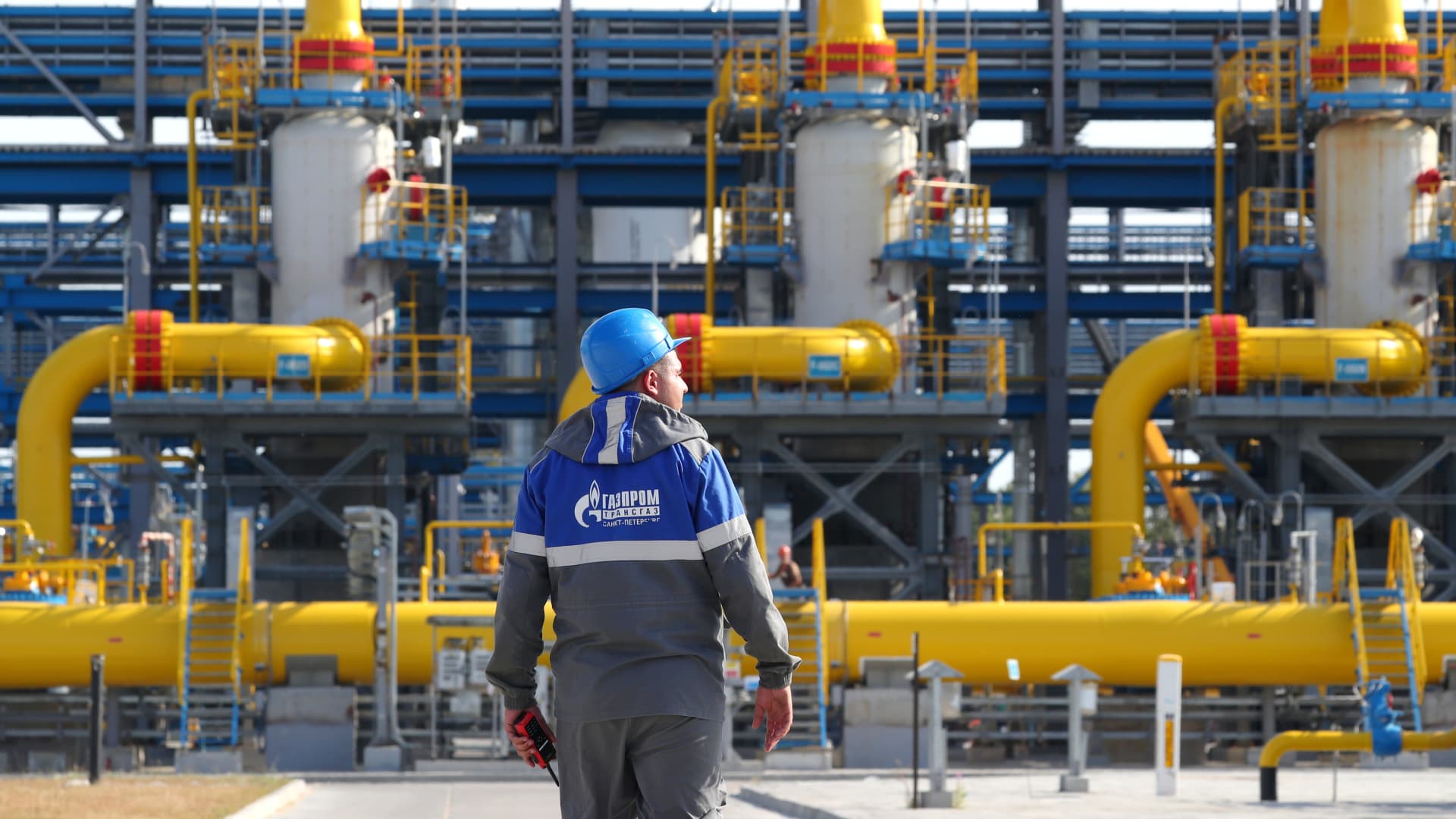
The Biden administration welcomed Germany's decision to halt the Nord Stream 2 pipeline with Russia and said that the U.S. would follow up with its own measures Tuesday.
White House press secretary Jen Psaki said in a Tuesday tweet that President Joe Biden and German Chancellor Olaf Scholz have been in "close consultations" after Russian President Vladimir Putin recognized the independence of two separatist regions in Ukraine and ordered troops into the areas.
During a press conference Tuesday, Scholz announced that he asked Germany's Economics Ministry to withdraw documents submitted as part of the process to approve Nord Stream 2.
– Amanda Macias
UK sanctions Russian banks and wealthy individuals
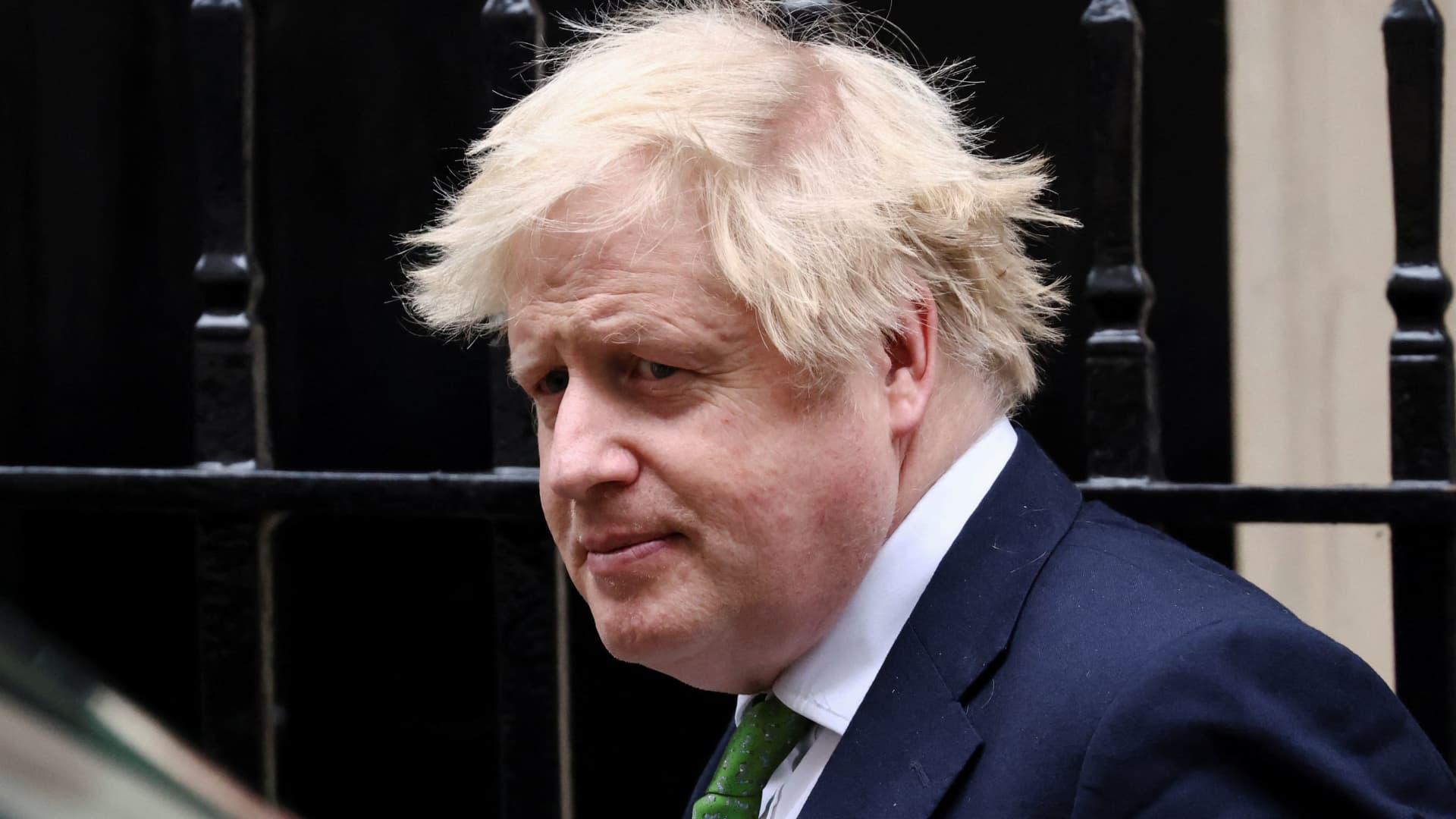
U.K. Prime Minister Boris Johnson said Tuesday that unless the situation in Ukraine changes, the efforts of Western nations to pursue a diplomatic resolution to the crisis "may be in vain."
"We have to face the possibility that none of our messages have been heeded and that Putin is implacably determined to go further in subjugating and tormenting Ukraine," he told lawmakers in Parliament.
Five Russian banks — Rossiya, Black Sea Bank, Genbank, IS Bank and Promsvyazbank — would now be subject to sanctions, Johnson announced.
Three wealthy Russian individuals, Gennadiy Timchenko, Boris Rotenberg and Igor Rotenberg, will also have their assets frozen by the U.K. government.
"We must now brace ourselves for the next possible stages of [Russian President Vladimir] Putin's plan," Johnson warned.
— Chloe Taylor
Deployment of Russian troops in eastern Ukraine marks ‘renewed invasion,’ UK’s Johnson says
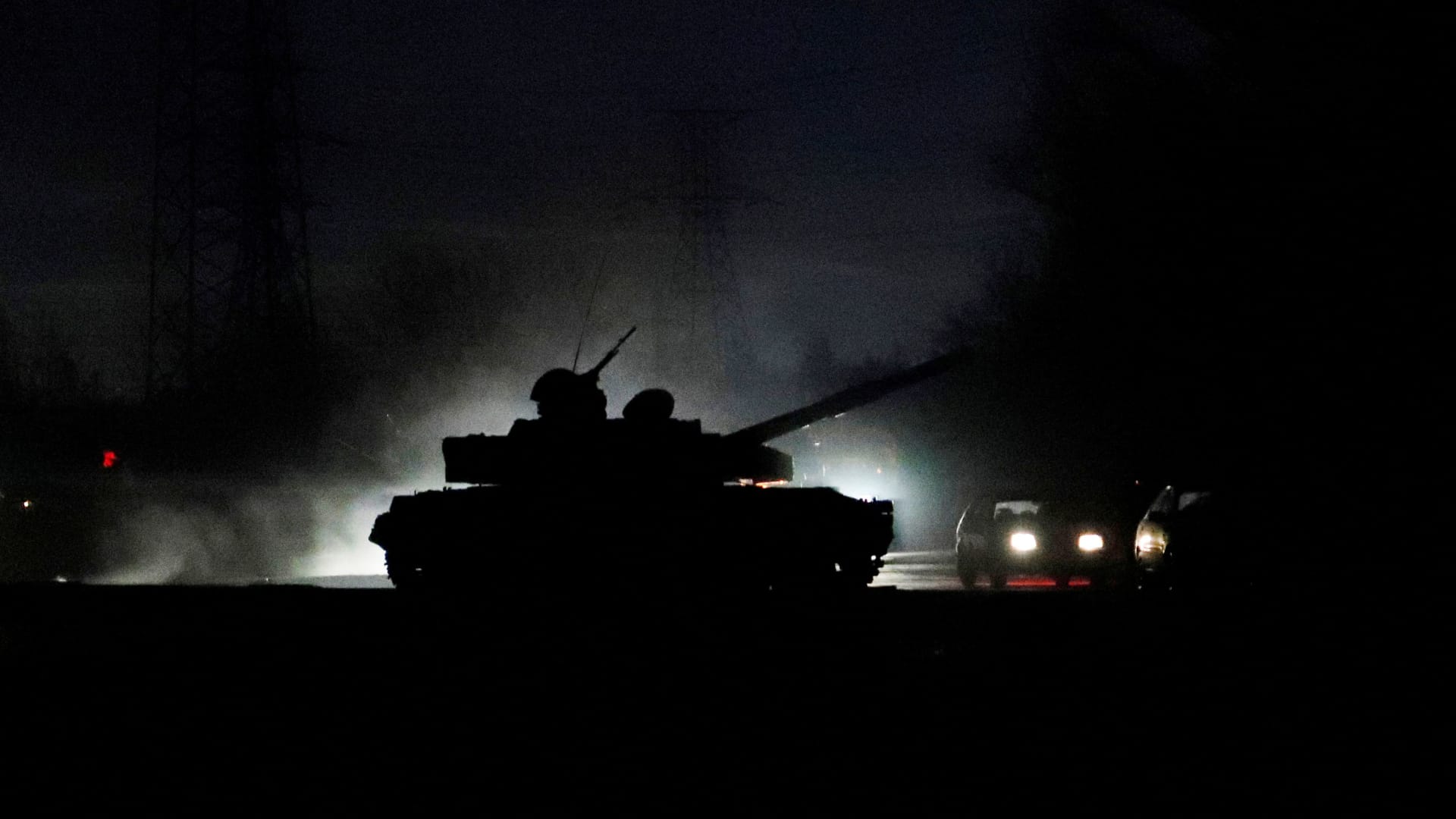
There should be "no doubt" that the deployment of Russian forces in Ukrainian territory "amounts to a renewed invasion of that country," British Prime Minister Boris Johnson has said.
Speaking to lawmakers in Parliament on Tuesday, Johnson said Russian tanks and armored personnel carriers have been spotted in eastern Ukraine since Putin said yesterday that Russia would recognize two breakaway regions in eastern Ukraine as independent.
"By denying Ukraine's legitimacy as a state, and presenting its very existence as a mortal threat to Russia, Putin is establishing the pretext for a full-scale offensive," Johnson added.
In an address to Russia on Monday evening, Putin claimed the U.S. and NATO saw Russia as the enemy, and wanted to use Ukraine as "a foothold for a strike" against Russian missile systems.
Johnson on Tuesday referred to that speech as "inflammatory," adding that Putin had "denied that Ukraine had any tradition of genuine statehood … and hurled numerous other false accusations and aspersions."
— Chloe Taylor
Kremlin says U.S. has not proposed Biden-Putin meeting
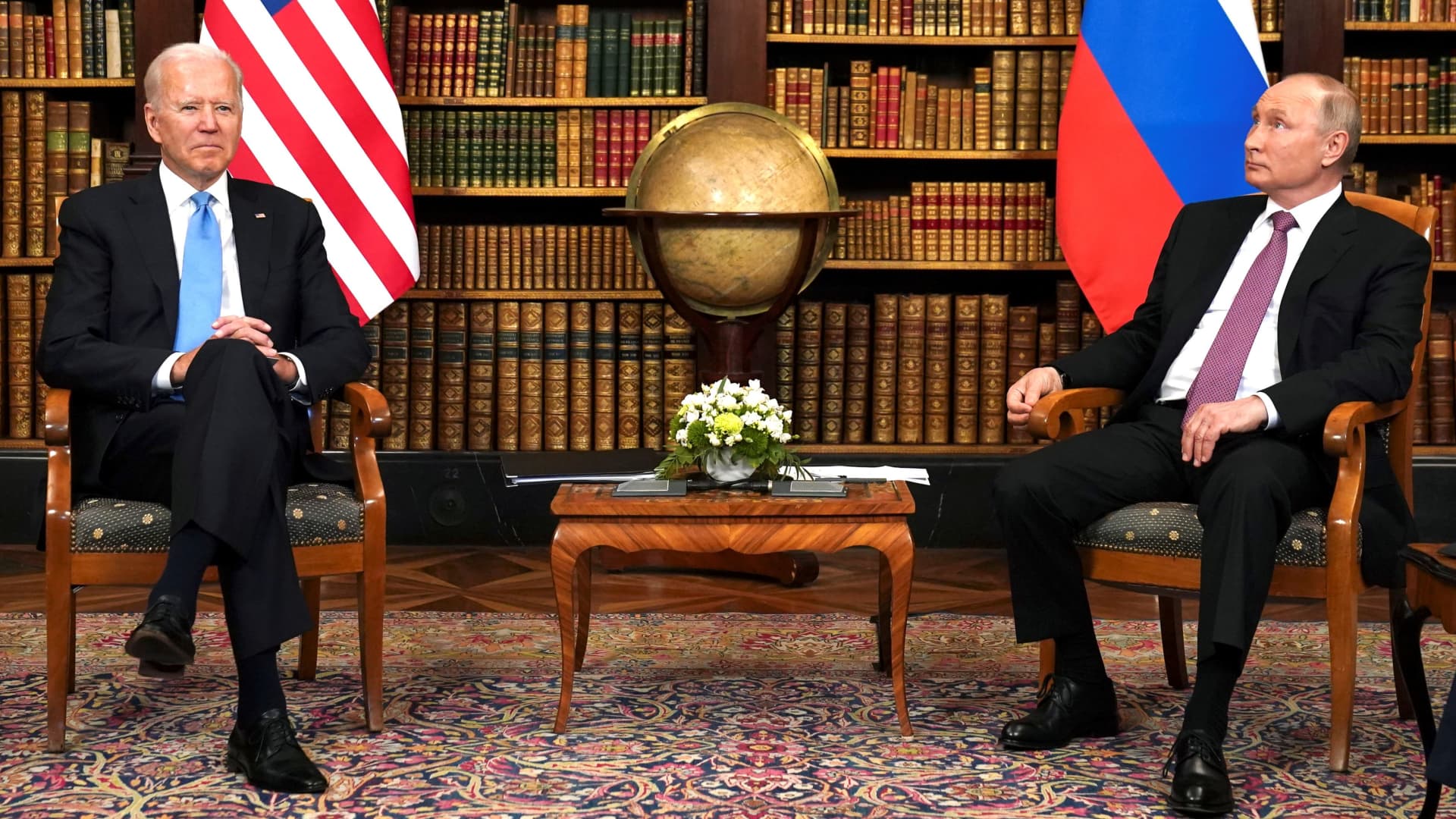
Kremlin spokesperson Dmitry Peskov has said the U.S. made no proposals for talks between President Joe Biden and his Russian counterpart Vladimir Putin.
According to Russian state-controlled media, Peskov told reporters Tuesday that Moscow remains "open to diplomatic contacts at all levels," however.
The White House said on Sunday that Biden had agreed "in principle" to a meeting with Putin, provided there was no invasion of Ukraine.
— Chloe Taylor
Ukraine will impose martial law in case of full-scale war, President Zelenskyy says
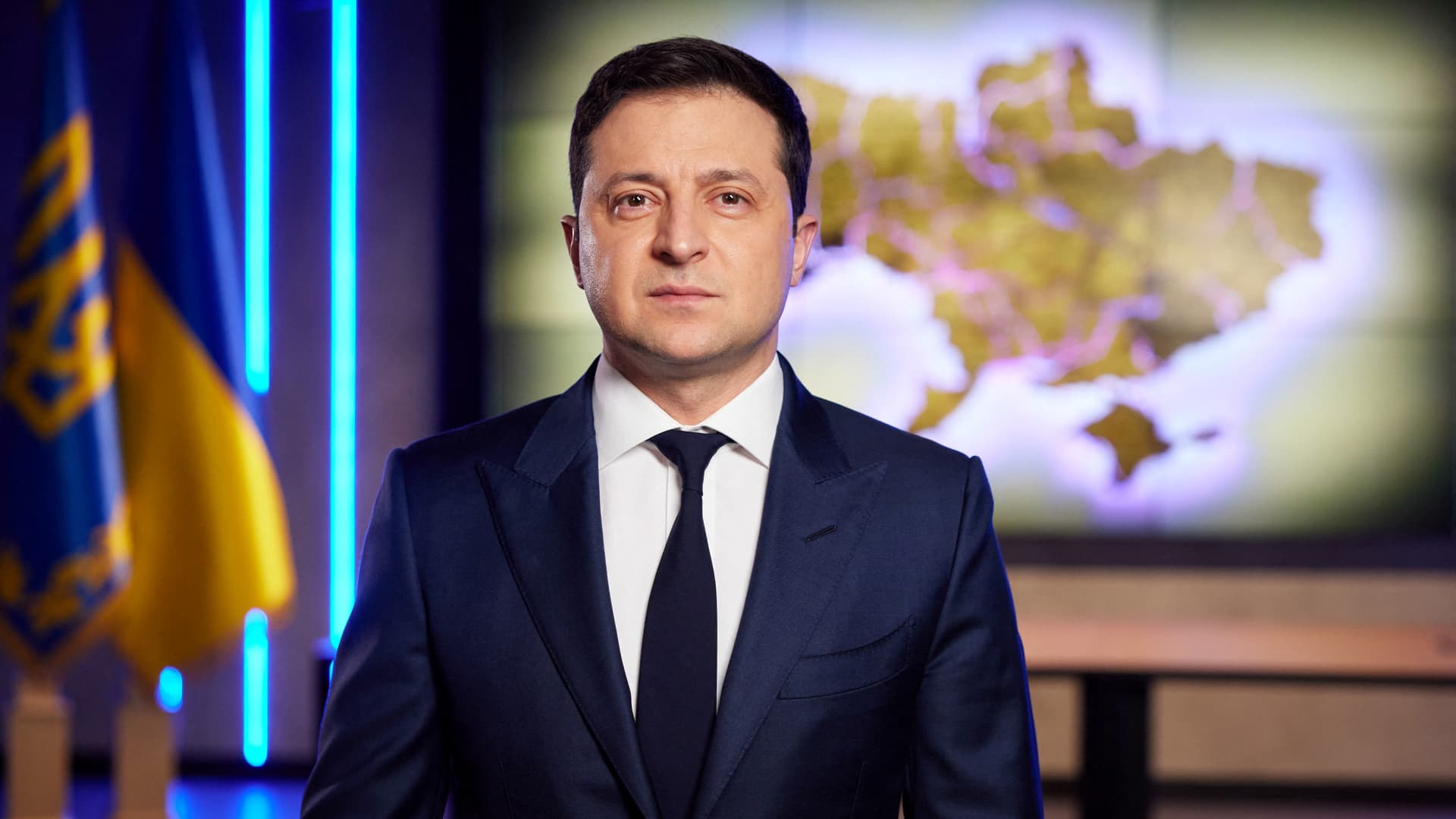
Volodymyr Zelenskyy, president of Ukraine, has told a press conference that if a full-scale war with Russia arises, Ukraine will impose martial law.
"We believe that there will be no large-scale war against Ukraine and no broad escalation against Ukraine," he told reporters on Tuesday. "[But] if there is, martial law will be imposed."
He added that although Ukraine is neither a member of the EU or NATO, a full-scale invasion by Russia would put other European countries at risk.
"Other states will be in danger — our neighbors Moldova, Lithuania, Latvia, Estonia," he warned. "God forbid, I do not wish this on anyone. Nobody wants a war. In Ukraine, people only want peace. But we must prepare for any steps of aggression from our neighbors."
— Chloe Taylor
German Chancellor Scholz halts approval of Nord Stream 2 pipeline
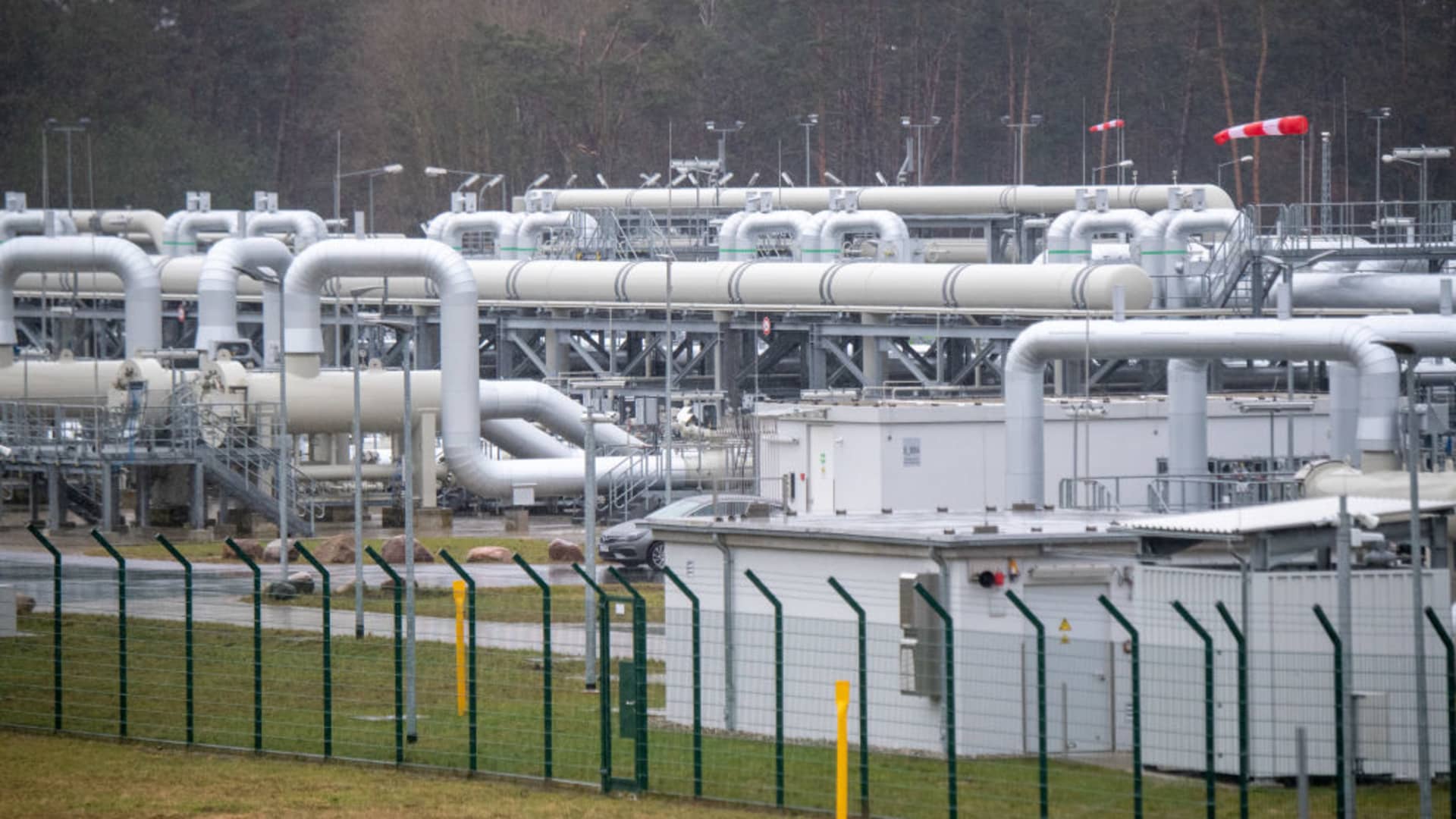
German Chancellor Olaf Scholz announced on Tuesday that Germany would not approve Nord Stream 2, the gas pipeline built by Russia's Gazprom to transport natural gas into Europe.
Speaking at a press conference, Scholz said he had asked Germany's Economics Ministry to withdraw documents that had been submitted as part of the process to approve Nord Stream 2.
"It sounds a bit technocratic, but this is the first necessary step to make sure that this pipeline cannot be certified at this point in time, and without this certification Nord Stream 2 cannot operate," Scholz told reporters.
It comes after Russia moved to recognize two breakaway regions of Ukraine and ordered its troops into Ukrainian territory.
"It is important to launch new sanctions now in order to prevent an escalation and a disaster. All our diplomatic efforts are undertaken," Scholz said on Tuesday.
"These are difficult hours for Europe and almost 80 years after the end of the Second World War, we might see a new war in Eastern Europe. It is our task to avert such a disaster and I call upon Russia once more to contribute their share."
— Chloe Taylor
Ukraine’s Zelenskyy: We need sanctions on Russia now
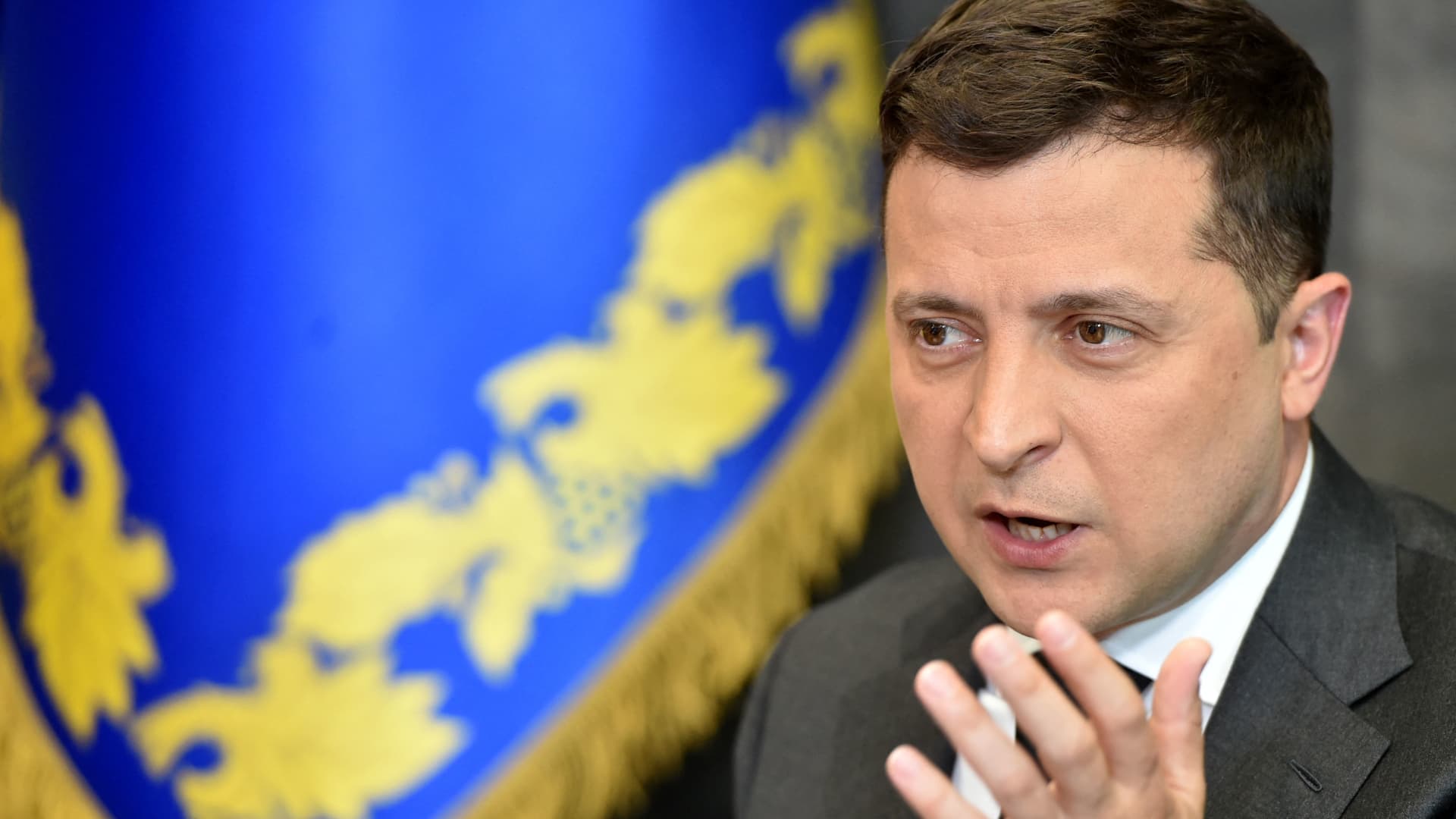
Ukrainian President Volodymyr Zelenskyy has once again called on the West to impose sanctions on Russia before it initiates any further military aggression toward Ukraine.
Speaking at a joint press conference with Estonian leader Alar Karis on Tuesday, Zelenskyy noted that Russia's recognition of two breakaway regions in eastern Ukraine had happened quickly.
"The reaction should be just as fast," he said, calling for sanctions to be imposed swiftly, including a complete halt to the Nord Stream 2 gas pipeline.
"The sanctions policy is a more powerful policy that will really affect the further probable escalation of the Russian Federation. Do not wait until it will happen, because the first steps of this aggression are already made. […] Legally, the aggression has already been done.
Zelenskyy also said his government was considering severing diplomatic ties with Russia.
At the weekend, German Chancellor Olaf Scholz rejected calls to sanction Russia immediately.
"It's better to say we do it then, instead of doing it now, because we want to avoid the situation," he told CNBC's Hadley Gamble on Saturday.
Scholz would not clarify what sanctions Russia might be hit with if it were to invade Ukraine. Rather, he said that Moscow ought to know "approximately" and not "exactly" the repercussions it would face.
— Chloe Taylor
Kremlin is taking steps to revive the Soviet Union, Ukrainian defense minister says
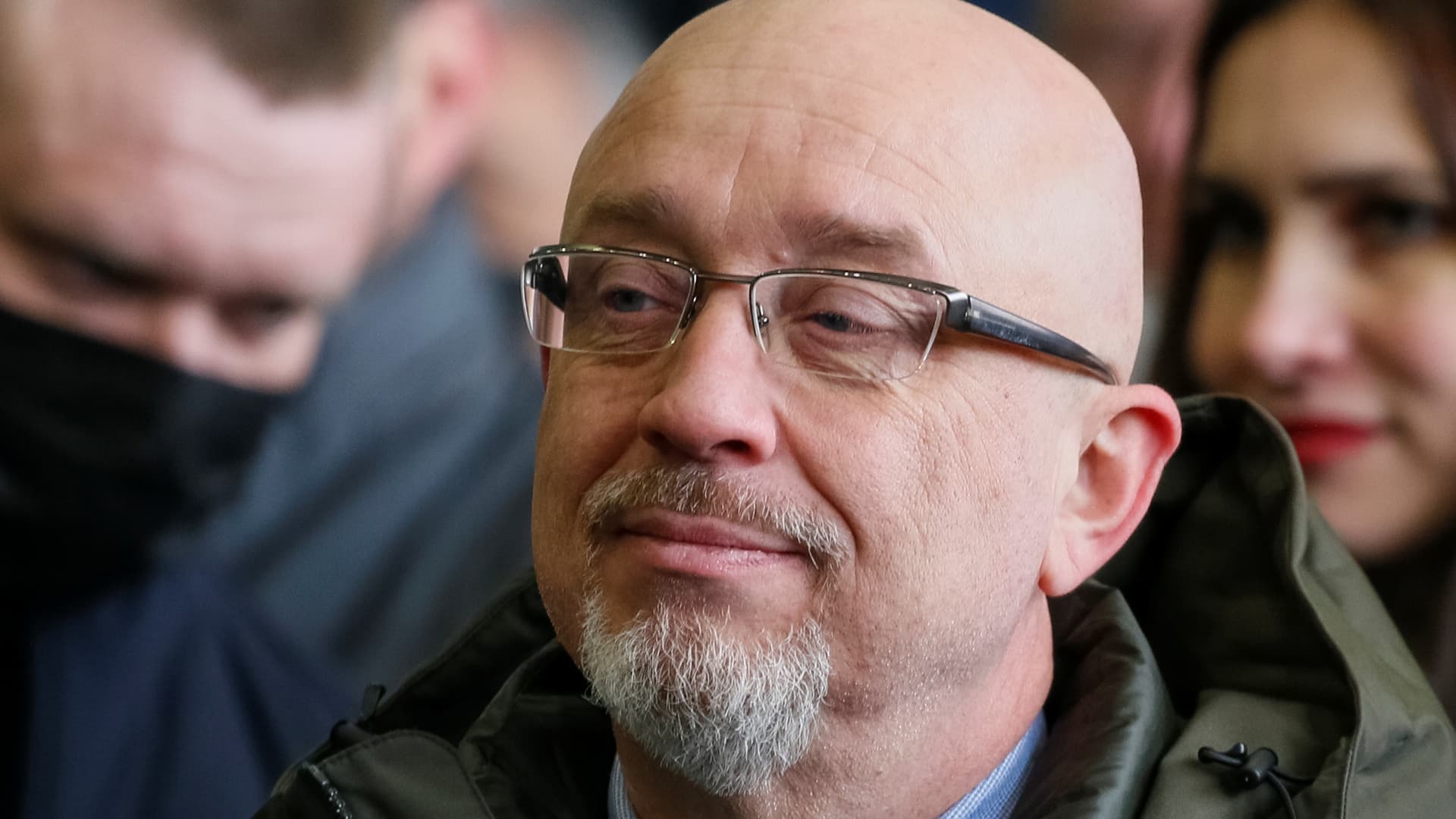
In an address to Ukraine's armed forces on Tuesday, the country's Defense Minister Oleksiy Reznikov said Russia's plans had been "busted," adding that Moscow had been "waging a villainous war all these years."
Around 13,000 people have died in a conflict between government forces and pro-Russia separatists in eastern Ukraine over the past eight years.
Adding that Ukraine's armed forces would "defend our country, our home, our family," Reznikov warned that "there are difficult challenges ahead — there will be losses."
"The Kremlin has taken another step towards the revival of the Soviet Union, with the new Warsaw Pact and the new Berlin Wall," he said.
The Warsaw Pact was a collective defense treaty established by the Soviet Union and seven other Soviet satellite states in Central and Eastern Europe during the Cold War. It was ideologically opposed to NATO, with the two organizations engaging in an arms race as they built up their own defenses.
— Chloe Taylor
Russian lawmakers vote to approve treaties with breakaway Ukrainian regions
Russia's lower house of parliament has voted to approve "friendship treaties" with two pro-Moscow breakaway regions in eastern Ukraine, according to Reuters.
The news agency reported on Tuesday that the treaties could pave the way for Russia to build military bases in the separatist-held regions of Ukraine and establish close economic and defensive ties with their leaders.
The treaties need to be signed by President Vladimir Putin before they can come into effect.
After Putin announced on Monday that Russia would recognize the breakaway regions, video footage emerged of officials from the self-declared Luhansk People's Republic celebrating and chanting "Russia."
— Chloe Taylor
Ukraine’s international borders remain unchanged, official says
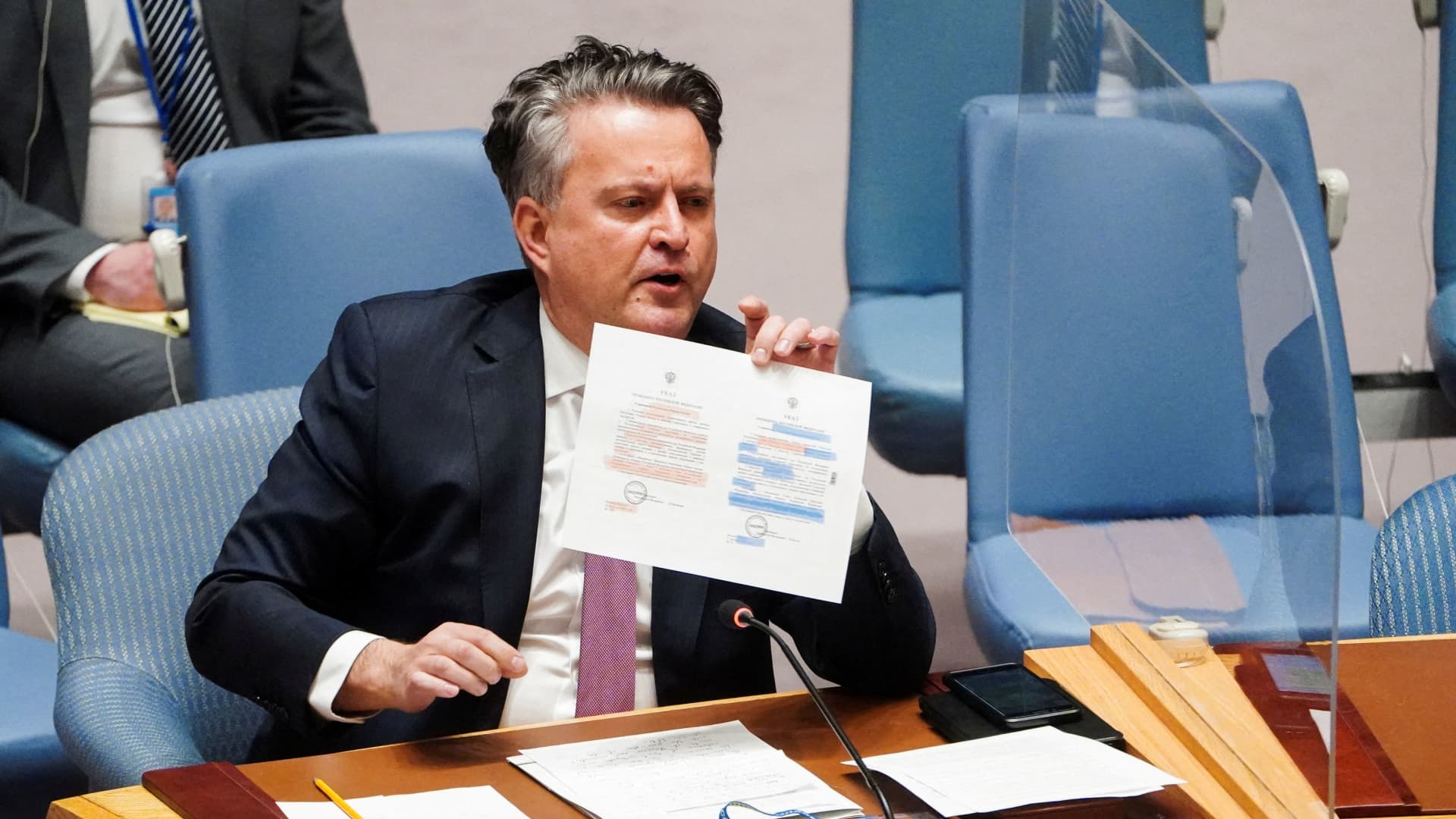
The Permanent Representative of Ukraine to the United Nations Sergiy Kyslytsia told the U.N. Security Council on Monday that despite Moscow's recognition of two separatist-held areas in eastern Ukraine, the country's international borders remained unchanged.
He added that Russia's decision could mark its unilateral withdrawal from the Minsk agreements, treaties signed in 2014 and 2015 to prevent a war in eastern Ukraine.
"We demand that Russia cancel the decision on recognition and return to the table of negotiations," Kyslytsia said.
A meeting of the U.N. Security Council was held at Ukraine's request following Russia's decision to recognize two breakaway regions in eastern Ukraine and deploy troops to the self-declared republics.
— Chloe Taylor
Unmarked military vehicles spotted in eastern Ukraine
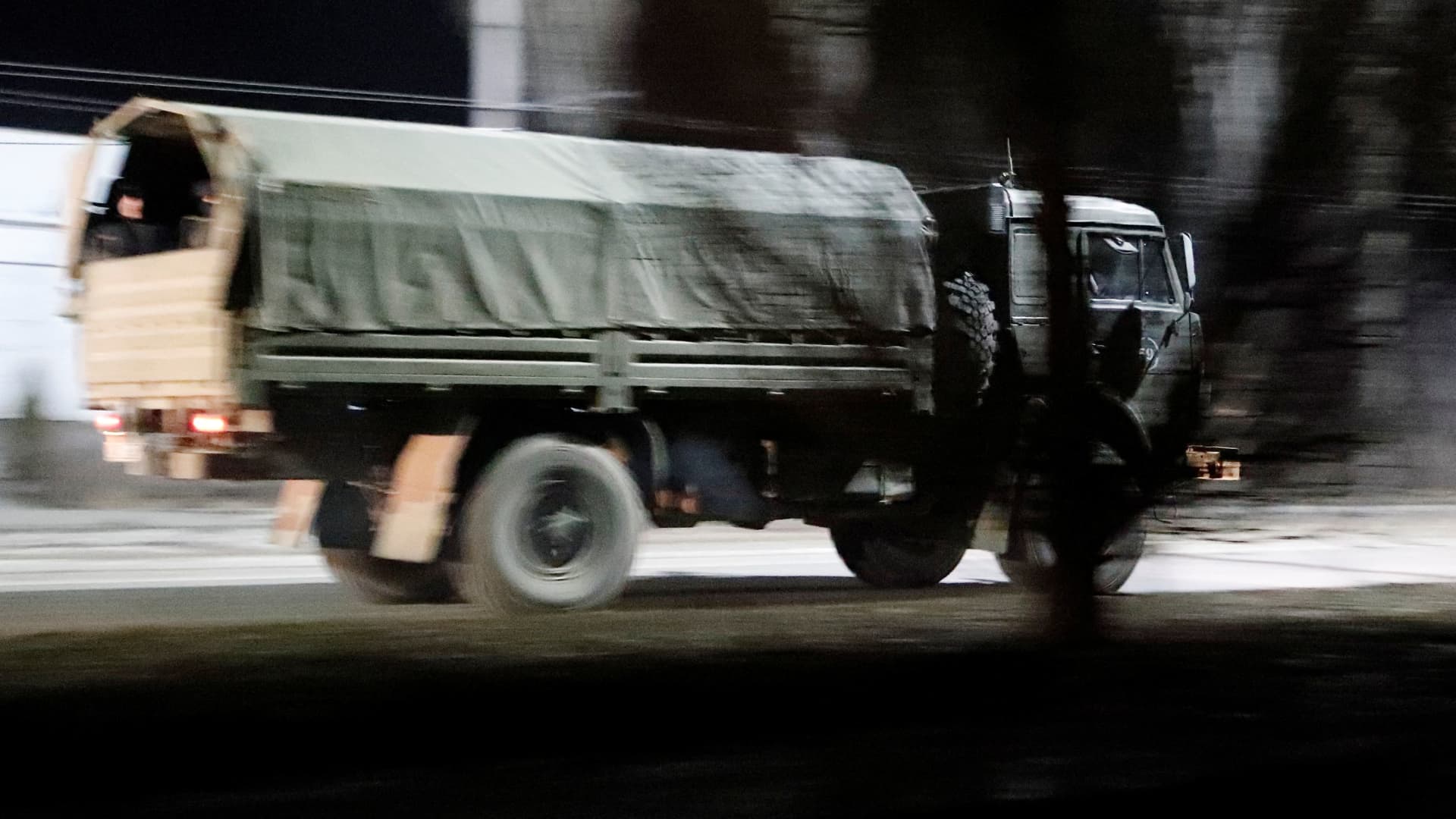
Columns of military vehicles were seen on the outskirts of Donetsk in eastern Ukraine early on Tuesday.
A Reuters witness saw tanks and armored vehicles near the capital of one of the two breakaway regions Russia chose to recognize as independent on Monday.
No insignia was visible on the vehicles, according to Reuters, but they were spotted just hours after Russian President Vladimir Putin signed treaties with the separatist-held regions and deployed Russian troops there in what Moscow has framed as a peacekeeping mission.
— Chloe Taylor
Putin wants to ‘turn Ukraine into a broken country,’ political analyst says
Moscow wants to "turn Ukraine into a broken country" by sending troops into eastern Ukraine after recognizing rebel-held Donetsk and Luhansk as independent states, according to Adriano Bosoni, a political analyst at Stratfor-RANE.
"Russia basically wants to turn Ukraine into a broken country, a country that is not under full control of its entire territory, a country that could never aspire to join the European Union or NATO," he said on Tuesday.
The Kremlin is "sending the message that they willing to escalate the conflict in order to achieve that," he added.
The latest developments are particularly problematic for the European Union, Bosoni added.
He pointed out that while the EU has made it clear that Moscow will face sanctions and repercussions if it invades Ukraine, the bloc is "internally divided" over how to react to uncertain situations like the current one.
— Abigail Ng
'We must act rapidly,' says EU Foreign Affairs Chief after Putin's move
The European Union "must act rapidly" after the decision of Russian President Vladimir Putin to recognize two Ukrainian regions as independent, the EU's foreign affairs chief Josep Borrell said Tuesday.
Borrell is expected to present its first set of sanctions against Russia this afternoon during a meeting with the 27 EU foreign affairs ministers.
"I cannot go into detail," Borrell told reporters in Paris about what his package of measures will entail.
In order to implement new sanctions against Russia, all the 27 EU capitals need to approve them.
Prime Minister of Lithuania Ingrida Simonyte said Monday: "The way we respond will define us for the generations to come."
— Silvia Amaro
World reacts as Russia’s Putin sends troops into eastern Ukraine
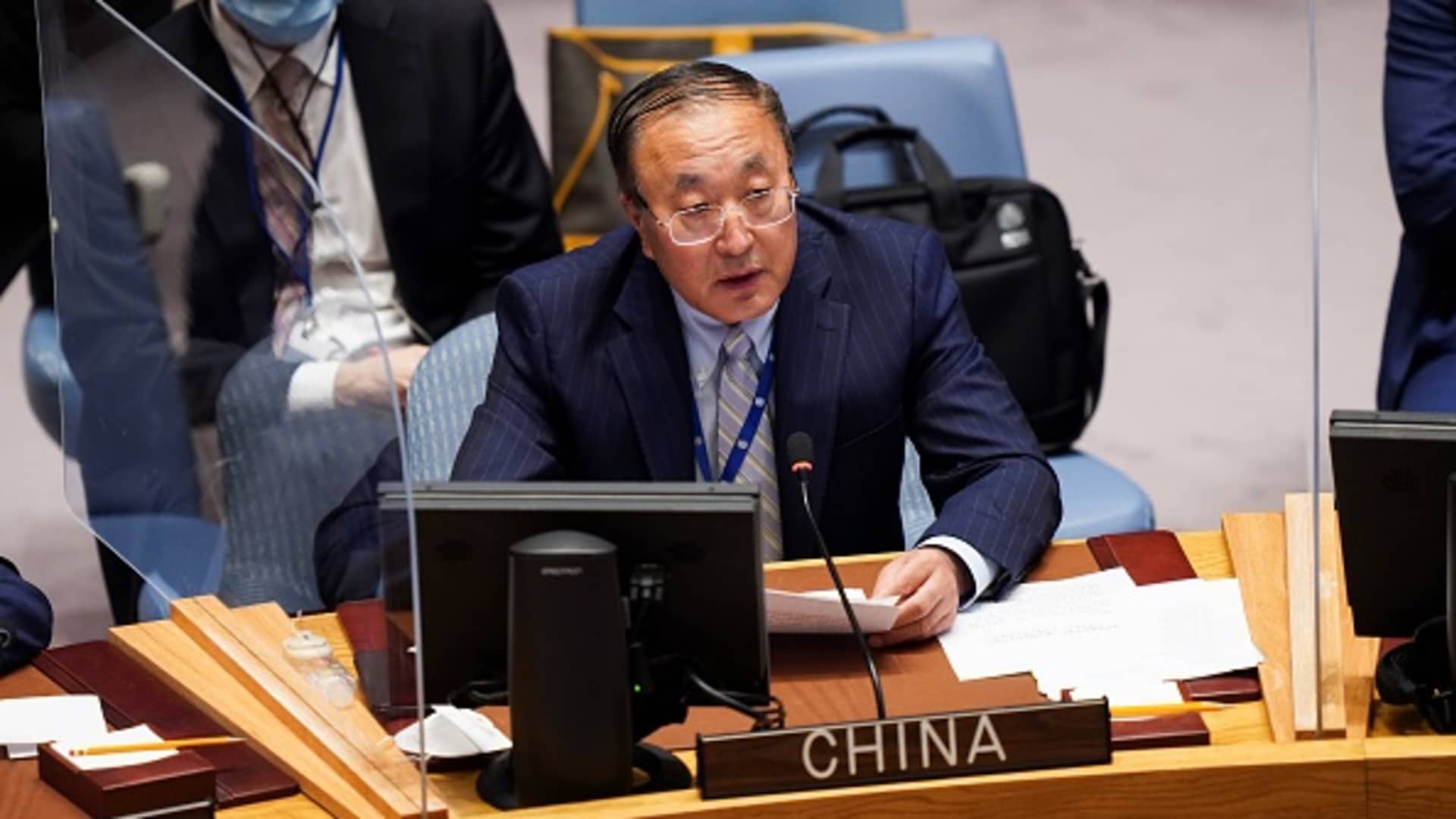
The directive from Russian President Vladimir Putin to send troops into separatist regions of eastern Ukraine has drawn condemnation from around the world.
Australian Prime Minister Scott Morrison said the suggestion that Russian troops may be entering Ukraine to maintain peace — as Putin has claimed — was "nonsense."
Meanwhile, India's ambassador to the U.N., TS Tirumurti, said the Russia-Ukraine situation was a matter of "deep concern" and called on all sides to show "restraint" in the face of escalating tensions.
Elsewhere, China, one of Russia's closest allies, did not take sides and urged all countries to try to resolve international disputes "by peaceful means."
China's U.N. Ambassador Zhang Jun told the U.N. Security Council that the current situation in Ukraine was "the result of many complex factors."
— Sam Meredith
Putin has 'gravely miscalculated’ Ukraine situation, UK’s Johnson says
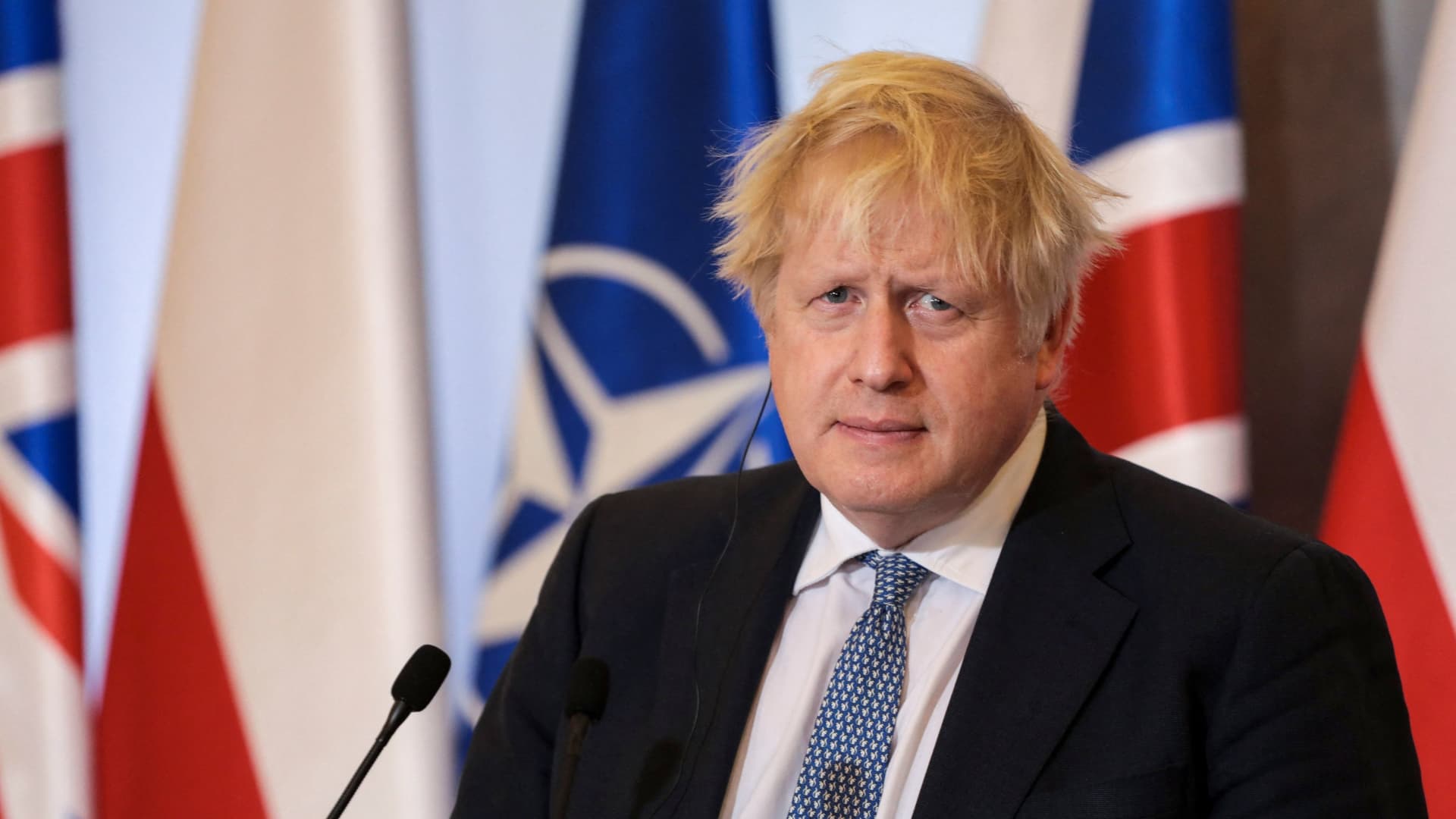
Britain's Prime Minister Boris Johnson told reporters on Tuesday that Russian President Vladimir Putin will find he has "gravely miscalculated" his actions on Ukraine.
Speaking after chairing a meeting of Cobra — the U.K.'s national emergency committee — on Tuesday, Johnson also said that Russia appeared to be set on carrying out a full-scale invasion, Reuters reported.
"I think that the tragedy of the present situation is that President Putin has surrounded himself with like-minded advisors who tell him that Ukraine is not a proper country," Johnson said. "And I think that he is going to find that he has gravely miscalculated."
The U.K. is expected to announce new sanctions on Russia on Tuesday over its recognition of two breakaway regions in eastern Ukraine.
At a press conference on Monday evening, Johnson described the move by Putin as a clear breach of international law, "a flagrant violation of the sovereignty and integrity of Ukraine" and a "very dark sign" about Russia's intentions.
— Chloe Taylor
Greece says Russia has violated international law
In a statement on Tuesday, the Greek Ministry of Foreign Affairs said Russia's recognition of the separatist regions of Donetsk and Luhansk in eastern Ukraine constituted "a blatant violation of fundamental principles of international law."
The ministry also said that Russia was violating Ukraine's territorial integrity and the Minsk agreements — treaties signed in 2014 and 2015 by Russia, Ukraine and pro-Moscow separatist leaders to prevent a war in eastern Ukraine.
"We have repeatedly stressed that Greece stands for respect of the territorial integrity, sovereignty and independence of all states," the Greek government added on Tuesday. "In the context of its commitments to the European Union and NATO, Greece will consult and coordinate with its European partners and allies regarding the response to this decision."
— Chloe Taylor
UK minister: Russia-Ukraine situation now as serious as Cuban missile crisis
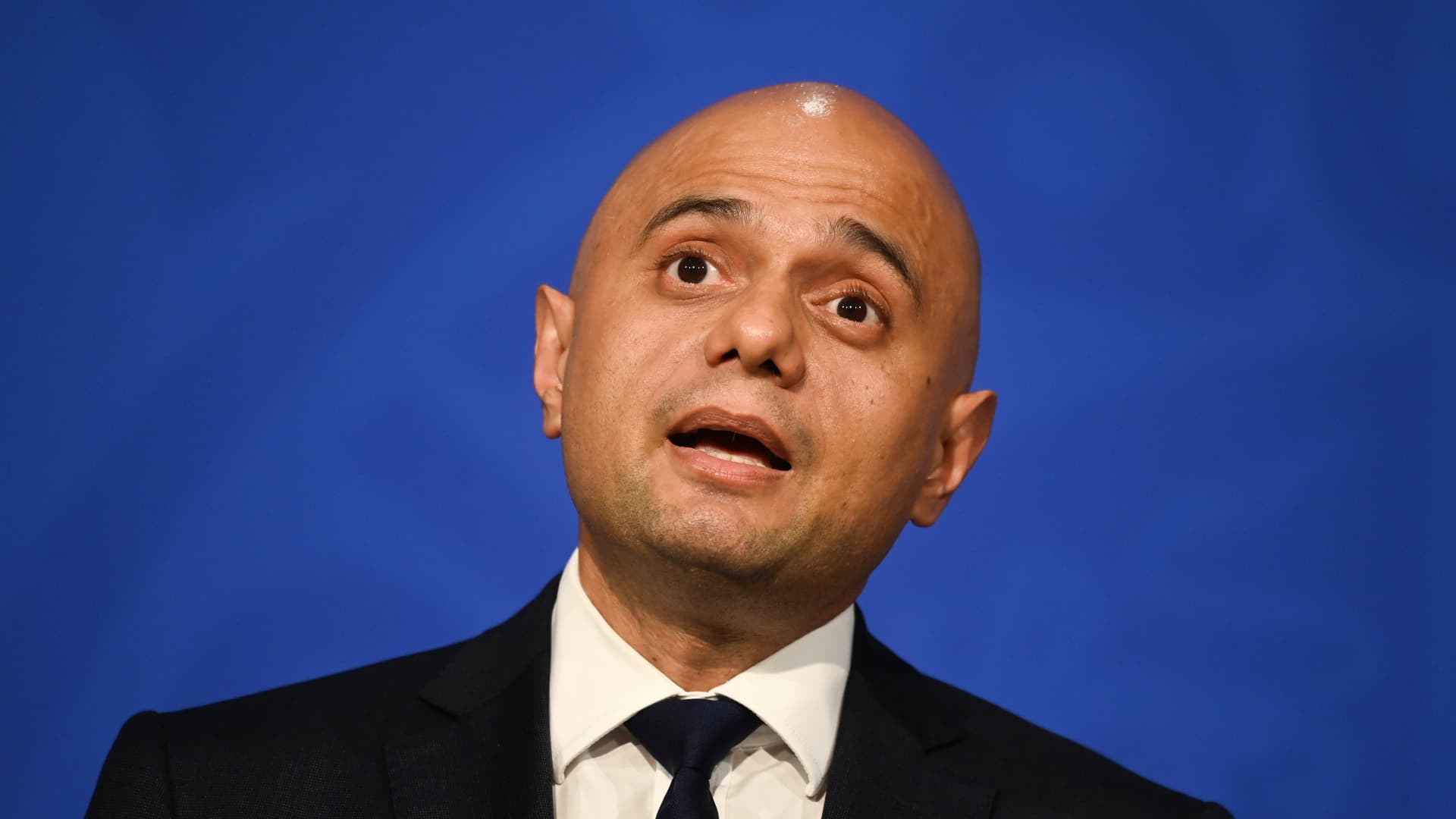
In an interview with BBC Radio 4 on Tuesday, U.K. Health Minister Sajid Javid was asked if Russia sending troops into eastern Ukraine shared any similarities with the Cuban missile crisis.
"I do think it's as serious a situation as that," he said.
The Cuban missile crisis brought the world to the brink of nuclear war in 1962, when the U.S. created a naval blockade around Cuba. The aim was to prevent the Soviet Union from bringing military supplies to the island where it had been building nuclear missile sites.
Javid added on Tuesday that there was still time for Russian President Vladimir Putin to choose a diplomatic option and recall troops to Russia.
— Chloe Taylor
Top Chinese, U.S. diplomats discuss Ukraine in phone call
China's Foreign Minister Wang Yi and U.S. Secretary of State Antony Blinken held a phone call Tuesday just hours after Russian President Vladimir Putin ordered troops into two breakaway parts of Ukraine.
The Chinese side said the situation in Ukraine is getting worse, and called for restraint on all sides, according to a foreign ministry statement.
"The Secretary underscored the need to preserve Ukraine's sovereignty and territorial integrity," the brief readout from the U.S. State Department said.
Putin and Chinese President Xi Jinping had met in Beijing ahead of the Winter Olympic Games in the city.
— Evelyn Cheng
‘Invasion of Ukraine has begun,’ British minister says
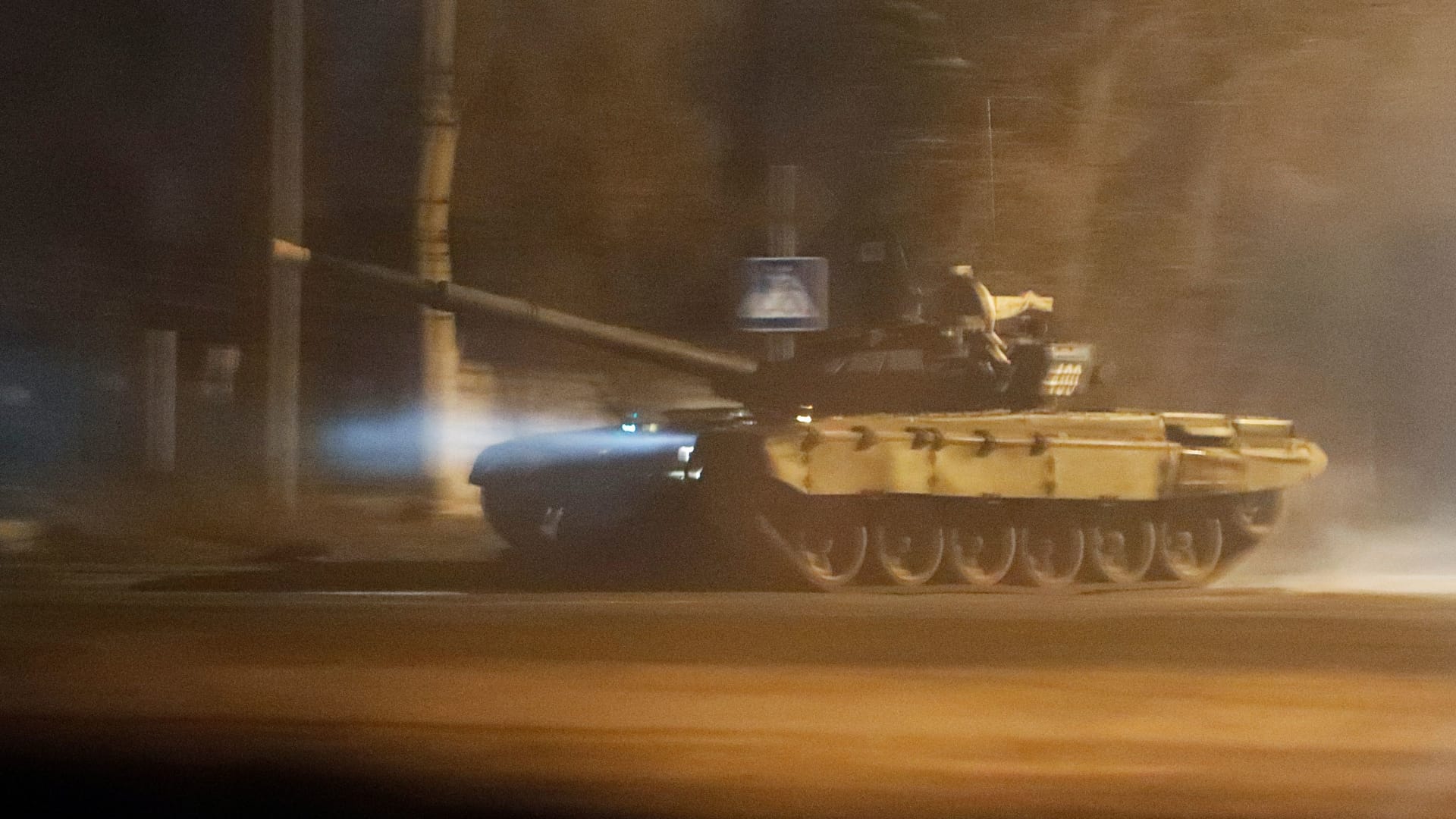
The latest developments in the Russia-Ukraine crisis signal that the invasion of Ukraine has begun, according to a British government official.
"We're waking up to a very dark day in Europe," U.K. Health Minister Sajid Javid told Sky News on Tuesday. "And it's clear from what we've already seen that Putin has decided to attack the sovereignty of Ukraine and its territorial integrity. We've always said that's completely unacceptable."
Russian President Vladimir Putin ordered troops into two regions in eastern Ukraine held by pro-Moscow rebels on Monday, after announcing that the Kremlin would officially recognize the self-declared republics as independent from Ukraine.
Javid added on Tuesday: "From the reports I think we can already tell that he's sent in tanks and troops. From that you can conclude that the invasion of Ukraine has begun."
The Biden administration is yet to refer to the Russian incursion into eastern Ukraine as an invasion. However, former U.S. ambassador to Russia Michael McFaul told CNBC on Monday that Putin had invaded Ukraine.
— Chloe Taylor
EU foreign affairs ministers to discuss new Russia sanctions
European ambassadors are gathering at 9:30 a.m. Brussels time to discuss the EU's next steps.
It comes after the presidents of the European Commission and European Council said Monday that Russia's recognition of the areas of Donetsk and Luhansk in eastern Ukraine as independent was a "blatant violation of international law."
"The Union will react with sanctions against those involved in this illegal act," the two presidents also said.
The EU's foreign affairs chief Josep Borrell is expected to call for an extraordinary meeting of foreign affairs ministers Tuesday to approve new sanctions on Russia, but the time of this meeting has not yet been confirmed.
All the 27 member states need to approve the package of measures in order for these to go ahead. Meanwhile, an EU official, who did not want to be named due to the sensitivity of the talks, told CNBC that "no one will oppose" new sanctions.
On Saturday, European Commission President Ursula von der Leyen told CNBC that "everything is on the table" when it comes to sanctions — including possible penalties targeting Russian gas giant Gazprom.
— Silvia Amaro
For Russia, taking action on Ukraine now might be ‘less costly’ than waiting, says analyst
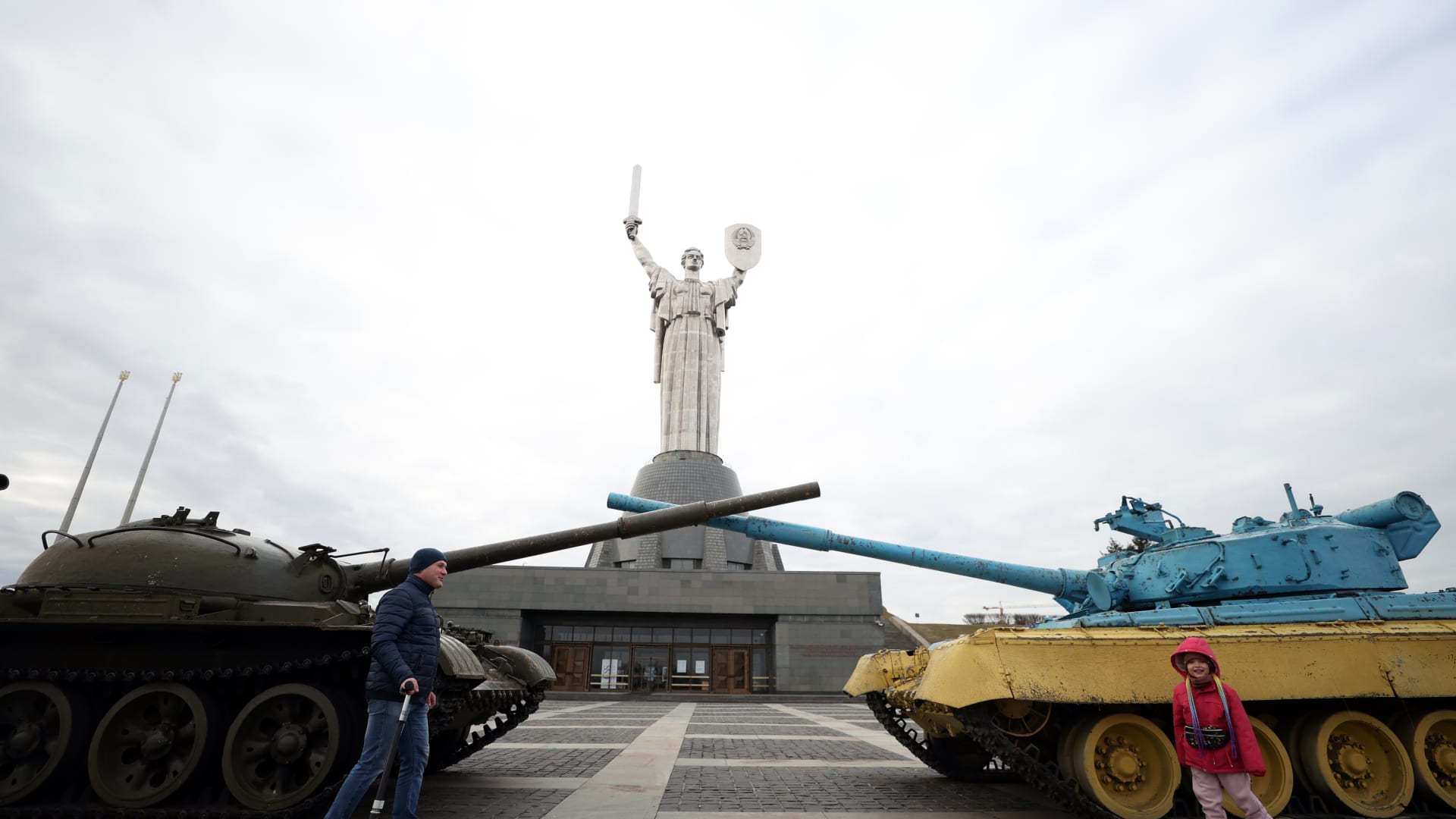
Russia doesn't want NATO and Kyiv to believe that arms exports to Ukraine successfully deterred Moscow, said Rob Lee of the Foreign Policy Research Institute.
From that point of view, Putin may think it's better for Russia to ramp up aggression on Ukraine instead of doing nothing, said Lee, a senior fellow at the institute.
If Russia backs down now, NATO will think that arms exports to Ukraine were a "key decisive step" and that more deterrence is needed — and Moscow doesn't want that, he told CNBC on Monday.
"One reason why Russia might consider action now to be less costly than waiting is that if Ukraine develops longer-range missile systems, that means any kind of Russian escalation in the future could lead to Ukraine strikes on Russian cities or significant military infrastructure deeper into Russia," Lee said.
Ukraine doesn't have that option right now and that's probably "part of the cost-benefit analysis" for Putin, he added.
— Chelsea Ong
Ukraine won’t react to provocation from Russia, says President Zelenskyy
Ukrainian President Volodymyr Zelenskyy said that his government won't react to provocation from Russia, and "will not give anything to anyone."
Still, his government is committed to diplomacy, he said in a televised broadcast early Tuesday morning local time, according to a transcript by NBC News.
"We're dedicated to diplomatic means of solving this issue. We're not reacting to any provocations," he said after Russian President Vladimir Putin ordered forces into eastern Ukraine. "This is our choice. We are on our land. We're not afraid of anyone and everyone."
Zelenskyy also called on allies to support Kyiv.
"We need to see who are our friends and partners, and who continues to frighten the Russia Federation with just words," he said. "We're dedicated to diplomatic means of solving this issue."
— Abigail Ng
Oil prices jump as Russia-Ukraine crisis escalates
Oil prices jumped as the crisis between Russia and Ukraine took a turn for the worse. Russia was the largest supplier of natural gas and oil to the European Union last year, and escalating tensions with Ukraine are pushing oil prices higher.
Oil could spike to $110 per barrel if the crisis worsens, according to Andy Lipow, president of Lipow Oil Associates.
"Should we actually have Russian oil supplies cut off to Europe — which is 3 million barrels a day — we could see oil prices rise another $10 to $15 a barrel, putting Brent at about $110 a barrel," he told CNBC's "Street Signs Asia" on Tuesday.
— Weizhen Tan


